nexus
Research blog of the International Institute for Applied Systems AnalysisCo-generating visions for “climate modernity”
Thomas Schinko discusses the recent UN Climate Conference (COP26) and an Austrian project, which aims to co-create courageous and positive visions for a climate resilient future.
The more you give, the more you get
Can we lift people out of energy poverty while simultaneously reducing carbon dioxide emissions? Camille Belmin tried to tackle this issue.
Globally coordinated mitigation policy could benefit environmentally conscious farmers
Stefan Frank discusses a recent study that looked into the impacts of ambitious EU agricultural mitigation policies on the livelihoods of farmers.
Global migration and the complex interplay between environmental and social factors
Venla Niva shares insights from a recent article exploring the interplay of environmental and social factors behind human migration.
Will mining the Amazon really bring economic development for Brazil?
Will opening protected areas to mining truly lead to economic development for Brazil? 2021 Young Scientists Summer Program (YSSP) participant, Sebastian Luckeneder is using spatial modeling to find out.
Assessing the cascading impacts of natural disasters
Asjad Naqvi and Irene Monasterolo discuss a framework they developed to assess how natural disasters cascade across socioeconomic systems.
Let’s not be arrogant about climate change adaptation
IIASA researcher Marina Andrijevic tackles some inconvenient but fundamental issues around climate change adaptation.
Strengthening the resilience of our global food system while advancing its transformation
Frank Sperling shares his thoughts on issues around sustainable and transformational food production in the context of the UN Food Systems Summit.
Paris Agreement politics at play: the case for carbon dioxide removal
Young Scientists Summer Program (YSSP) participant Felix Schenuit dives into the politics and challenges surrounding carbon dioxide removal in international climate negotiations.
Warming waters, evolution, and the future for fisheries policy
YSSP participant Lyndsie Wszola explores how human interactions with warming freshwater systems have affected the evolution of fish species.
Science across closed borders – the quest for restoring forests in North Korea
Despite the political challenges, 2021 YSSP participant Eunbeen Park is researching ways to restore forests in isolated North Korea.
The gender dimension in my research
Do women lack power in the face of disaster? Are they really the fragile gender? Raquel Guimaraes’ research delves into issues of gender relating to disasters and climate change.
Can seaweed be the solution to our land problems?
Young Scientists Summer Program (YSSP) participant Scott Spillias explores how the adoption of offshore seaweed farming could affect land use.
IIASA Connect: Mapping the IIASA network under lockdown
Kekeletso Makau shares her experiences using IIASA Connect to bring in the South African systems analysis network.
Why we need basic sciences for sustainable development more than ever
Michael Spiro makes the case for why the world needs basic sciences for sustainable development now more than at any time in the past.
How has the COVID-19 pandemic affected the urban poor?
Three IIASA researchers explain how COVID-19 has impacted the poor in cities and what can be done to increase the future resilience of vulnerable populations.
Solutions providing multiple resilience dividends require an integrated approach
Disaster Risk Reduction investments bring a wide variety of benefits, but are often not included in investment appraisals or recognized by funders. How do we change this?
Multiple benefits of Disaster Risk Reduction investments
Julian Joseph explains the benefits of Disaster Risk Reduction investments using Tanzania and Zambia as a case study.
Using the COVID-19 pandemic to transform the energy sector
COVID-19 has disrupted the global energy sector, but it has also revealed opportunities. The International Science Council’s Husam Ibrahim explains.
Restructuring the food system after COVID-19
The International Science Council’s Husam Ibrahim summarizes the IIASA-ISC Resilient Food Systems Report’s insights into how COVID-19 is impacting the food system and lessons learned from the pandemic.
Enhancing science systems and bouncing forward sustainably from COVID-19
COVID-19 saw people turn to science for reliable solutions, and actionable advice. The IIASA-ISC Strengthening Science Systems report addresses how science can be better prepared for future crises.
Learning from COVID-19 and upgrading sustainable governance
The International Science Council (ISC)’s Husam Ibrahim writes about insights gained from the recent IIASA-ISC Enhancing Governance for Sustainability Report.
A story of new beginnings
Marie Franquin writes about her first six months as part of the IIASA Communications and External Relations team.
Addressing the youth’s climate justice concerns
Thomas Schinko introduces an innovative and transdisciplinary peer-to-peer training program.
Plan S: Promoting full and immediate Open Access publishing
IIASA Repository and Open Access Manager Luke Kirwan explains the ins-and-outs of the Plan S policy towards full and immediate Open Access publishing.
Roads, landslides, and rethinking development
Prakash Khadka and Wei Liu explain how unbridled, unplanned infrastructure expansion in Nepal is increasing the risk of landslides.
How we count energy poverty is broken, requires new framework
Shonali Pachauri discusses a new framework developed at IIASA to more accurately identify the energy poor.
Science communication for a humane world
Shorouk Elkobros shares her love for science communication and why she thinks it is pivotal for humanity.
The footprint of COVID-19 on carbon emissions and future work at IIASA
Greg Davies-Jones finds out how COVID-19 has lightened the carbon footprint of IIASA and how it plans to integrate sustainability into future activities.
From pasture to plate: can beef be produced sustainably?
Being mindful of biodiversity loss and environmental impact can disrupt the beef industry globally, here’s how.
Matching human movement to climate change
Greg Davies-Jones sits down with Lisa Thalheimer to discuss how attribution science can play a leading role in addressing disaster displacement.
Cultivating a new set of core values at IIASA
Shorouk Elkobros interviewed Lindsay Radakovits-Smith, Deputy Head of the IIASA Human Resources (HR) Department and HR Operations Officer to discuss the institute’s new shared values.
Exploring co-benefits of green cooling in China
Xu Wang and Pallav Purohit explain how climate-friendly and energy-efficient air conditioning could expedite building a low-carbon society in China.
How to advance climate policies towards a low-carbon economy
How can research provide more effective decision-making tools to policymakers for better climate change mitigation policies?
A vision for a stronger IIASA
Greg Davies-Jones delves into the topic of Capacity Development at IIASA and what the institute hopes to achieve in the coming years.
Global hunger and trade under global warming
Charlotte Janssens and Petr Havlik explain how world trade can relieve regional impacts of climate change on food production and provide a way to reduce the risk of hunger.
Crafting mines from satellite images
IIASA alumnus Victor Maus describes his latest research in which he and IIASA colleagues mapped more than 57,000 km² of mining areas around the globe using satellite images.
Open science has to go beyond open source
Daniel Huppmann sheds light on how open-source scientific software and FAIR data can bring us one step closer to a community of open science.
How to reverse global wildlife declines by 2050
The health of nature is intimately linked to the health of humans. A new IIASA-led study proposes pathways to reverse the current trend of biodiversity loss and shows that the next 30 years will be pivotal for the Earth’s wildlife.
Reducing footprints and enhancing resilience: A strategic direction for the next decade
Several members of the IIASA Strategic Taskforce share their views on the bold new IIASA strategic agenda, how it came to be, and what it promises for the future.
Modeling ancient history to inform the future
IIASA alumnus Marcus Thomson explains how what we have learnt about prehistoric farming cultures can be used to provide useful insights on human societal responses to climate change.
How COVID-19 complicates the journey for climate migrants
Lisa Thalheimer shares her journey in researching climate-related migration in the age of the COVID-19 pandemic and the importance of taking mental health issues into account.
The coronavirus crisis as an opportunity for an innovative future
Nebojsa Nakicenovic explains how societal disruptions caused by the coronavirus pandemic can offer an opportunity for a more sustainable and innovative future.
What did we learn from COVID-19 models?
IIASA researcher Sibel Eker explores the usefulness and reliability of COVID-19 models for informing decision making about the extent of the epidemic and the healthcare problem.
Mapping habitats in support of biodiversity research
IIASA postdoc Martin Jung discusses how a newly developed map can help provide a detailed view of important species habitats and assist in ecosystem threat assessments and biodiversity modeling efforts.
How citizen science can fill data gaps for the SDGs
Dilek Fraisl discusses how citizen science data can be harnessed to contribute to effective evidence-based policymaking and monitoring progress towards all 17 Sustainable Development Goals.
Give yourself a nudge and make smarter decisions
Ralph Keeney is a professor and consultant about decision-making. He describes his most recent book, Give Yourself a Nudge: Helping Smart People Make Smarter Personal and Business Decisions, and how it can impact you.
The IIASA COVID-19 dashboard
Tadeusz Bara-Slupski discusses his company’s recent collaboration with IIASA to develop an interactive COVID-19 data visualization tool.
The female face of COVID-19 infections in Europe
Does COVID-19 affect men and women differently? Tomas Sobotka sheds light on the demographics of the coronavirus pandemic in Europe.
COVID19 – Let’s Not Forget the Humans
Nicole Arbour shares why it is important it to remember the human factor in the global pandemic.
EGU2020 – a virtual experience of a first-time conference visit
Jarmo Kikstra, a research assistant in the IIASA Energy Program, shares his experience at EGU2020: Sharing Geosciences Online.
The Cercedilla Manifesto: Advocating for more environmentally and socially sustainable research meetings
Raquel Guimaraes and Debbora Leip argue that it is time for researchers to set an example by making research meetings more sustainable.
Resilience thinking: Preparing for and recovering from COVID-19 in the context of compound risks
Finn Laurien and Reinhard Mechler share how systems resilience measurement can prepare communities facing multiple threats like Covid-19 and disaster and climate risks.
Air travel and COVID-19: How effective are travel bans?
Tamás Krisztin discusses air travel restrictions and how effective they really are in terms of curbing the spread of COVID-19.
IIASA, East and West Germany, and the Cold War: Researching IIASA’s History
Liza Soutschek shares her journey in researching the institute’s history relating to the Cold War for her PhD dissertation.
COVID-19: An unprecedented shock to social and economic systems
Erich Striessnig discusses the risks posed by COVID-19 and shares research insights around the socioeconomic indicators related to the pandemic in Austria.
Research-on-demand?
Leena Ilmola-Sheppard discusses the value of using novel research methods to produce fast results to inform policies that address immediate problems like the current COVID-19 pandemic.
Explaining the COVID-19 outbreak and mitigation measures
Raya Muttarak writes about what we have learnt about the COVID-19 outbreak so far, and how collective mitigation measures could influence the spread of the disease.
Is India’s Ujjwala cooking gas program a success or failure?
Abhishek Kar shares his thoughts on the Indian government’s Ujjwala program, which aims to scale up household access to Liquefied Petroleum Gas (LPG) for clean cooking.
African cities are critical to global climate mitigation
Luo’s recent publication in the Journal of Cleaner Production considers the needs of the poorest and most vulnerable communities when exploring policy insights for Dar es Salaam’s energy transition.
Cost effective solutions to manage nutrient pollution in the Yangtze
Maryna Strokal discusses a new integrated approach to finding cost-effective solutions for nutrient pollution and coastal eutrophication developed with IIASA colleagues.
Climate change or behavior change?
Leila Niamir describes how her research findings answer this important question and the model developed to support policymakers’ decision by exploring impacts of behavioral and social dynamics in the transition to low-carbon and climate-resilient societies.
It is worth weighting for better health measures
Sonja Spitzer discusses how survey data often fails to capture all socioeconomic groups and explains how to ensure health information used by policymakers is based on accurate statistics.
Greening through schooling: How education influences pro-environmental behavior
Roman Hoffmann outlines how education significantly contributes to increasing pro-environmental actions among low-income households in the Philippines.
Representing IIASA at the 2019 Centennial AGU Fall Meeting
Florian Hofhansl shares his experience presenting the wildfire climate impacts and adaptation model (FLAM) at the Google Exhibition Booth at the 2019 American Geosciences Union meeting.
Vienna as a global hub for science diplomacy
Jan Marco Müller shares his insights on the recent forum in Vienna that brought together science advisors to ministers of foreign affairs from across the world and leading science diplomacy experts.
Towards a step-change for dealing with critical risks ‘beyond’ adaptation and the Loss and Damage policy debate.
Teresa M. Deubelli and Reinhard Mechler discuss how the principles of risk governance can help deal with critical risks beyond adaptation and the Loss and Damage policy debate.
Creating a safe space to talk about gender equality in science
Luiza Toledo writes about how the IIASA Women in Science Club are creating a safe space to talk about and advance gender equality in science.
Advocating for a new ecology grounded in systems science
Brian Fath and colleagues discuss the application of ecosystem principles to environmental nanagement and the recently released second edition of their book, A New Ecology.
Understanding climate change as an everything issue
Award-winning climate communicator Katharine Hayhoe discusses the importance of effective science communication in overcoming barriers to public acceptance of climate change.
More fish, less energy, less pollution – but only if all players cooperate
Adriana Gómez-Sanabria discusses the results of a new study on the impacts of various technologies to treat wastewater from the fish processing industry in Indonesia.
Interview with the Science Advisory Committee Chair Mary Scholes
Mary Scholes has been serving on the IIASA Science Advisory Committee (SAC) since 2011 and was appointed as Chair in 2014. In this interview she discusses her views of SAC.
Curbing misinformation about migration in Austria
Nadejda Komendantova discusses how misinformation propagated by different communication mediums influence attitudes towards migrants in Austria.
Environment and health: Two sides of the same coin
2019 YSSP participant Rory Gibb investigates the effects of future land use, climate, and socioeconomic change on disease risk, focusing on Lassa fever in West Africa.
What we’ve learnt from measuring flood resilience
Finn Laurien outlines the insights the Flood Alliance has gained from application of the Flood Resilience Measurement for Communities (FRMC) to 118 communities in nine countries.
Introducing a framework for 21st century biological invasions
Bernd Lenzner discusses how understanding the role invasive species play in shaping global biodiversity and ecosystem services is crucial to a sustainable future.
Reflections on IIASA, systems analysis, and the IIASA community in the Netherlands
An interview with Leen Hordijk, who was previously a project leader, Council member, and director at IIASA.
Ethical research is a quest for truth
An interview with Dorsamy (Gansen) Pillay, IIASA council member for South Africa, on ethical research.
Managing complexity in social systems: Leverage points for policy and strategy
Christoph Mandl discusses how his recent publication is rooted in the seminal works of 4 IIASA alumni.
Perspectives on transforming food and land use systems for sustainable development
Food and land use systems play a critical role in managing climate risks and bringing the world onto a sustainable development trajectory – Frank Sperling explains.
Lessons from 50 years of model-based policy advocacy
An interview with IIASA alumnus Dennis Meadows during his recent visit to IIASA.
Cooperation needed! The case of drought management in Austria
Marlene Palka discusses the IIASA FARM project, which has been investigating drought risk management in Austria for the past three years.
Enhancing urban resilience through nature-based solutions
Regina Buono investigates how the law can support or impede the use of nature-based solutions and help facilitate adaptation to climate change.
When breathing is expensive
Muye Ru investigates the main health impacts of air pollution and what this means for the economy and social development of a country.
Rethinking optimal control theory in resource economics
Serguei Kaniovski from the Austrian Institute of Economic Research writes about a recent study in which he and colleagues from IIASA revisited a classic growth model.
My postdoc experience at IIASA
IIASA alumna Nandita Saikia, looks back on the two years that she spent living in Austria while working as a postdoctoral researcher in the World Population Program.
How the environment shapes the way we behave
Roope Kaaronen investigates how changes in the urban environment affect people’s behavior and whether they will find it easy to engage in sustainable behavior in different environments.
Beyond averages and aggregates
Shonali Pachauri explains why data, indicators, and monitoring at finer scales are important to ensure that everyone benefits from policies aimed at achieving development goals.
The Earth is our spaceship: Perspectives from space
Retired NASA Astronaut and Principal of AstroPlanetview LLC, Sandra H Magnus shares insights about our world gained from her time living on the International Space Station.
Fostering cooperation, good governance, and connectivity in the digital era
Dmitry Erokhin shares his thoughts on the promotion of economic progress and security through energy cooperation, good governance, and connectivity in the digital era.
5 years of Vietnam membership at IIASA
Tran Thi Vo-Quyen, IIASA guest research scholar, interviews Professor Dr. Ninh Khac Ban, Director General of the International Cooperation Department at the Vietnam Academy of Science and Technology
Facilitating sustainable energy transitions at the top of the world
IIASA researcher Pallav Purohit writes about recent research that looked into how the issue of energy poverty can be addressed in Hindu Kush Himalaya-countries.
Bringing some light into the dark
How can risk assessments considering uncertainties substantially contribute to better risk management and the prevention of economic impacts? YSSP alumnus Tobias Sieg explains.
Exploring risk in development indicators
Junko Mochizuki explains how a newly developed indicator can help identify countries that should be prioritized for human development and disaster risk reduction interventions.
Exploring urban-rural differences in health risks from extreme temperatures
IIASA alumna Kejia Hu discusses a recent study on how extreme temperatures affect the health risks experienced by urban and rural communities in China.
Running global models in a castle in Europe
Matt Cooper, PhD student at the Department of Geographical Sciences, University of Maryland, and 2018 winner of the IIASA Peccei Award, talks about his summer at IIASA.
Eat healthy and sustainably, don’t leave yourself behind
On World Water Day, IIASA researcher Barbara Willaarts tells us how our dietary choices can contribute towards reaching Sustainable Development Goal 6: Water for all by 2030.
Shaping my scientific career
2019 YSSP Award finalist Davit Stepanyan discusses how his summer at IIASA has boosted his research to a new level.
15 years of Egypt membership at IIASA
Tom Danaher, IIASA external relations officer, interviews Mahmoud Sakr, President of the Egyptian Academy of Scientific Research and Technology (ASRT) and IIASA council member for Egypt.
What matters more in preventing adult deaths in India?
IIASA postdoc Nandita Saikia looks at what matters more in preventing unexpected adult deaths. Is it wealth? Or education?
This is not reality
Computer modelling approaches can attract criticism and model validation is crucial to countering this. Sibel Eker looks and different validation approaches and reminds us that, like Magritte’s pipe, a model is only a representation of reality.
Closing funding gaps and building bridges with the IIASA network
IIASA Development Officer Marzena Adamczuk talks about the impact of the YSSP Fund and the power of the IIASA network.
Building bridges between Europe and Asia
WU Vienna MSc student and IIASA Youth Forum participant Dimitry Erokhin reports on his visit to the “Connecting Europe and Asia” conference and why Eurasian cooperation is so important.
Finding community at the AGU Fall Meeting
IIASA alumna Lu Liu talks about her experience at the American Geophysical Union (AGU) Meeting 2018.
Rescuing the world from drowning
Sea level rise is one of the most challenging impacts of climate change. IIASA postdoc Julian Hunt explains a new barrier technique to reduce glacier melt.
How culture affects perceptions of climate change related technology
IIASA alumnus Farid Karimi explains how public perception shapes the development of technologies related to climate change.
Science without policy is science, but policy without science is gambling
IIASA alumnus Géza Tóth shares his thoughts on bringing science and industry closer together.
Opening up creative spaces for critical thinking
Following her participation in the art-science performance ‘Migraspectives’, Nour Barakeh explains how opening up creative spaces for critical thinking can bridge the divide between researchers, policymakers, and society.
Identifying hotspots of land use cover change in Mexico
Alma Mendoza discusses the results of a recent study, which identified hotspots of land use change in Mexico to help prioritize areas for improving environmental performance.
Moisture matters! What’s the impact of water thresholds and soil characteristics?
IIASA researcher Rastislav Skalsky looks at the importance of soil, its moisture content, and how to measure it, relating to his work with the GROW Observatory.
Dance and science: A graceful partnership for change
Jessie Jeanne Stinnett shares her thoughts on the place of dance within the 21st century discourse on global issues through an IIASA/Harvard Art and Science project.
Climate risks, limits, and a need for transformational adaptation
An author shares his perspective on the IPCC’s Special Report on Global Warming of 1.5°C.
Creativity: a change in thinking for a sustainable future
IIASA 2018 YSSP participant Laura Mononen looks at creativity from a systems perspective to build a more sustainable world.
Insights into the future of agriculture from past human climate change responses
IIASA researcher and former YSSP participant Marcus Thomson explains how he used archeological data and climate modeling to look at the past responses of farmers to climate change, and offer important insights for the future.
The world needs IIASA: Pavel Kabat looks back
Pavel Kabat is chief scientist at the World Meteorological Organization and was director general of IIASA from February 2012 until September 2018
Volunteering for our climate – An interview with YSSP participant Yuping Bai
The PhD student talks about her volunteer work for the Intergovernmental Panel on Climate Change.
Reimagining the workforce of the future
J. Luke Irwin, 2018 YSSP participant, explains how we can make the most of our potential by re-imagining the future of human work.
Estimating risk across Africa
Lillian Petersen, high-school student and summer intern at IIASA, is working on developing high-resolution estimates of the risk for humanitarian crises across Africa.
Climate systems science is personal and so are the risks
Dame Julia Slingo and Peter Lemke on translating climate change risk into personally relevant narratives.
Raising the game: A new approach to understanding decision making
YSSP participant Sara Turner is using a computer game to find out how people decide to share resources and how stable these decisions are.
When science meets art: The birth of a new mindset
Composer Merlijn Twaalfhoven writes about how the merging of science and art can be used to build bridges between art, science, and societal issues.
Education in, through, and for sustainable development
IIASA researcher Stephanie Bengtsson talks about the relationship between education and development.
Human behavior is the most important factor
Young Scientists Summer Program (YSSP) participant Tum Nhim investigates new mechanisms to ensure a fair water distribution among farmers.
Cooking with clean fuel to save lives
Behavior change starts with a home-cooked meal: Abhishek Kar’s YSSP research explores how LPG can save lives in rural India
The philosophy of climate change – An interview with YSSP participant Kian Mintz-Woo
The young scientist talks about his research project on the interface between moral philosophy and risk management.
The legacy of systems analysis in South Africa: when young scientists become global leaders
Sepo Hachigonta, once a YSSP participant himself, shares the inspiration behind the recently released book “Systems Analysis for Complex Global Challenges,” the intellectual legacy of generations of IIASA and South African YSSP alums.
Why I am a Cool Forest Ambassador
IIASA researcher Anatoly Shvidenko highlights the importance of cool forests for our climate.
Science and the media – An interview with Anne Glover
Dame Anne Glover talks about social media and how she keeps up to date on research news.
International research organizations as a source of societal development and peace
In his lecture at IIASA, Maurizio Bona from CERN discussed the question “Science and diplomacy–two different worlds?”
From YSSP to Antarctica: Reflections on a year of science and travel
In 2017, Cecile Godde participated in both the IIASA Young Scientists Summer Program (YSSP) and Homeward Bound, a scientific leadership program that culminated in a trip to Antarctica. Here, she writes about her experiences.
India’s Unwanted Daughters
Nandita Saikia shares how being born an “unwanted” daughter inspired her to champion education to empower Indian girls to realize their own worth and capability.
Rice and reason: Planning for system complexity in the Indus Basin
Alan Nicol explains why policymakers and stakeholders should work together to plan a prosperous, sustainable, and equitable future for those living in the Indus River Basin.
Impressions and messages from the Vienna Energy Forum and the R20 Austrian World Summit 2018
Beatriz Mayor, IIASA research scholar, shares her main insights and buzzwords from the Vienna Energy Forum and the R20 Austrian World Summit
How to achieve scientific excellence
W. Brian Arthur from the Santa Fe Institute (SFI), and a former IIASA researcher, talks about increasing returns and the magic formula to get really great science.
Intellectual property rights, copyrights, and open licenses
Luke Kirwan, Open Access Manager at the IIASA Library, explains the ins-and-outs of intellectual property rights and open access as we celebrate World Intellectual Property Day.
Monitoring urban greenspace with mobile phones
IIASA researchers are actively contributing to raising awareness of the importance of urban forests for quality of life through the LandSense project.
International Women’s Day at IIASA
International Women’s Day is celebrated worldwide every year on 8 March. This year, IIASA celebrated International Women’s Day with a panel discussion on women and sustainability
Emission reductions from fuel subsidy removal – the researchers respond to the debate
Jessica Jewell and her colleagues respond to the online debate surrounding their recent paper in Nature.
Less global inequality can improve climate outcomes
An analysis by IIASA researchers suggests that the energy-increasing effect of lowering inequality is more of a distraction than a concern.
Using Twitter data for demographic research
Dilek Yildiz explains how using social media data in social science research could provide insights into attitudes, behavior, social linkages and interactions between individuals.
Arctic Circle embraces the Arctic Futures Initiative
Hannu Halinen reflects on the progress of the IIASA Arctic Futures Initiative, which partnered with the Arctic Circle this year.
Foreign direct investments in Eurasia: too little and from the wrong places?
Peter Havlik explores why some Eurasian countries have not proven particularly attractive for foreign investors.
Conversations in corridors: Attending the World Science Forum 2017
Nemi Vora reports back on discussing how international mentoring can help address worldwide inequalities.
Where are they now?
Lauren Hale, Young Scientist Summer Program 1996 alumna, on her current research and on working with IIASA again.
Kick-starting proactive management of climate-related disasters
Can we harness the power of hurricanes for good?
Intelligent cooperation
The key to improving global welfare and the tools to make it happen.
Parched: The war for water in Mexico City
With the water crisis worsening every year, Mexico City needs to find a solution before it runs out of water completely.
Crowdsourcing for food security
The Geo-wiki project works to develop a global field size dataset with the help of the public.
Myths are not true… or are they?
In a unique workshop led by drama artist Miranda Lakerveld, myths meet science and activism for finding common truths.
How we nearly drowned – on a mountaintop
Merlijn Twaalfhoven, composer, musician, entrepreneur, reports back from the 2017 Alpbach-Laxenburg Group retreat.
Unleashing innovation for sustainability
IIASA researcher Verena Rauchenwald reports back on her experience thinking outside the box as part of a global innovation lab.
Clean air beyond the 2008 Olympics in China?
China builds on efforts to tackle particulate matter pollution after the Beijing 2008 Olympic Games.
Cornelius Hirsch: Digging into foreign investment in agriculture
A young researcher reveals why land-grabbing is actually a misnomer for water-grabbing
Interview from Alpbach: Stop praising innovation
Technology alone cannot solve deeply rooted relational and cultural problems: to make an impact, good ideas must reach widespread practice.
Communicating scientific uncertainty
You won’t harm interest in science or trust in scientists by communicating uncertainty, you might even engage people more.
The carbon curse: Can countries that produce fossil fuels ever get close to a low-carbon economy?
Exploring the links between extractivism and climate change mitigation.
Do smokers know what they are doing to their life expectancy?
New research finds that more highly educated people are more likely to correctly predict their survival probabilities.
What would an oil spill mean for the Arctic?
An oil spill could cause irreversible damage to Arctic wildlife, even altering world populations of the more vulnerable species
Spread of invasive species driven by trade and transport
Findings from a new study links spread of invasive species to global trade and transport development.
Disappearing Act: Bolivia’s second largest lake dries up
After Bolivia’s catastrophic drought, a YSSP explores how to help communities adapt
Falling fertility rates: Why do wealthier people have fewer children?
YSSP participant Sara Loo looks at the trend of falling fertility rates through the lens of cultural evolution
Interview: Living in the age of adaptation
Adil Najam on the need for adaptation and our failure to mitigate enough or in time
Interview: A community-based approach to managing human-wildlife conflicts
In an interview, YSSP participant Ziyun Zhu talks about his research on wildlife damage insurance schemes and working as a conservation biologist in his country.
Living to age five: Reducing deadly indoor air pollution in developing countries
Tackling indoor air pollution in developing countries means more children survive to see their fifth birthday and safeguards women’s wellbeing.
Nothing new under the sun?
An interdisciplinary research project explores glo-cal entanglements of power and nature in 18th century Vienna
Bringing satellite data down to Earth
Free access to satellite data is important, but with massive data amounts, innovation is needed to make these data sets accessible and usable beyond experts.
From the Himalayas to the Andes: Crowdsourced disaster risk mapping
A unique collaboration finds common ground on flood risk resilience challenges in Nepal, Mexico, and Peru.
What is driving Pakistan’s water crisis?
Pakistan is facing serious water scarcity problems: what’s driving the issue and what can be done?
Interview: A look back at the Young Scientists Summer Program
An interview with former IIASA director Roger Levien, who first conceived of a program at IIASA for young scientists.
Interview: An empirical view of resilience and sustainability
An alumnus of the YSSP aims to make a positive impact on humanity and sustainable development.
The roads to 2050
An ambitious international scientific initiative aims to chart the pathways from now to 2050 with a single aim: successful completion of the Sustainable Development Goals within planetary boundaries.
How clean is green gas?
While biogas brings climate benefits, it also has environmental impacts—a new study explores these impacts for Northern Italy.
Learn from the past, prepare for the future
How education contributes to raising disaster resilience in low- and middle-income countries.
Why Germany and not Japan is the leader in renewable energy
Comparing energy transitions in two countries which started out similar but ended up very different.
From risk reduction infrastructure to integrated watershed governance in Peru
Peru’s Rimac Valley looks more like a lunar landscape than a flood-risk hotspot, but add a few millimeters of rain, and everything changes.
What will it take to trust scientific data from citizens?
We trust the information that citizens supply about other public activities—so why don’t scientists and public authorities trust the data they are providing via citizen science campaigns?
Counting the Nepalese
Nepal is seeing massive migration to other countries, for jobs and other opportunities—what does that mean for population projections in the country?
How the Tohoku disaster is changing Japan
Could the earthquake, tsunami, and nuclear disaster be an opportunity to build sustainable communities?
Post-truth? Science responds through art
Gloria Benedikt, IIASA science and arts associate, on science and arts in the post-truth era
What you probably don’t know about higher education in sub-Saharan Africa
A new book sheds light on trends in African higher education.
New portal links local and global flood data
A new portal provides flood risk information globally and allows for information exchange.
Natural regeneration for sustainable development
Restoring degraded ecosystems can provide many vital services without impinging on cattle production, suggests new research from Brazil.
How the Middle East and North Africa see energy: Conflicts and compromise
An energy transition is taking place in the Middle East and North Africa, but without public support it faces challenges.
Interview: Defining the future(s)
How population research was incorporated in a set of scenarios designed for climate change research.
Are the Paris climate commitments fair?
The latest IIASA research on whether climate mitigation costs are equally distributed among countries and generations.
Mapping flood resilience in rural Nepal
The International Institute for Applied Systems Analysis and Practical Action, supported by the Zurich Flood Resilience Alliance, work with local communities to help them put themselves on the map.
Making the most of the IIASA Young Scientists Summer Program
Applying for the YSSP? A participant tells of her experience and gives tips for how to get the most out of a summer at IIASA.
Artist seeks scientist(s) for long-term relationship
For a playwright interested in climate change, IIASA was the ultimate “dating” pool.
Marriage or cohabitation means a longer and healthier life
An IIASA researcher explores the benefits of living in stable partnerships.
Why are the refugees who came to Austria in 2015 more educated than expected?
Results of a recent survey on migrants’ education levels seemed to surprise many in the Austrian public. An IIASA researcher provides more background.
A world on the move
How does the money that migrants send home contribute to sustainable development?
Boosting resilience for African cities
A participant in the 2016 YSSP describes realistic approaches to urban planning and governance on the continent.
At the crossroads of scientific enlightenment and regression
How can scientists and entrepreneurs work together to achieve the Sustainable Development Goals?
Preventing a water crisis at the US-Mexico border
The USA and Mexico must cooperate in order to preserve the river that connects and divides them.
Female-headed households hit harder by climate change
New research shows why women-headed households are more economically vulnerable to climate-related shocks
Leave no SDG behind
Science has an important role in supporting new global social contract and the 2030 agenda
Diversity in dialogue
Tarja Halonen, the first female president of Finland, discusses equality and diversity with IIASA staff.
Interview: Businesses now have social goals
Interview from Alpbach: Michael Perkinson on sustainable development and the private sector.
Interview: An occasion for innovation
Interview from Alpbach: Former WTO Director General Pascal Lamy on the role of trade in sustainable development
Interview: Science through the language of art
Gloria Benedikt joined IIASA in 2015 where she combines science and art to help solve global challenges.
The land of the midnight sun: Science to policy in the Arctic Council
As the first YSSP participant of the Arctic Futures Initiative, Gosia Smieszek seeks ways to bring science closer to decision-making in the Arctic Council.
Playing at flood resilience: Using games to help vulnerable communities
Gaming can bring a valuable, systems-analysis approach to resilience in flood-prone communities.
Modeling Vienna’s traffic: air pollution and health
Air pollution is a problem in urban areas—but better traffic data could improve projections of air quality and health.
Altmetrics—measuring impact on an article level
Tracing research impact across policy documents, blogs, social media, and more…
Interview: Plants and their fungi to slow down climate change
YSSP participant César Terrer talks about his research on climate change and the CO2 fertilization effect
Pipe dream or savior?
Exploring the practicalities of bioenergy with carbon capture and storage.
Water security for sustainable development
A workshop at IIASA brings new insight into scenario analysis for water resources.
Picture Pile: Gaming for Science
The crowdsourcing game Picture Pile has reached half its goal of sorting 5 million satellite images. Why IIASA researchers need your help to finish the rest.
When global lessons are not so easily learned
Disaster risk policy has a long way to go to to turn “lessons learned” into preventative actions.
It’s time to measure 21st century aging with 21st century tools
Turning 65 in 2016 doesn’t mean the same thing as hitting 65 in 1916. New measures of age change the equation.
Modeling forest fires: a burning issue
How can a model estimate how fast and far a wildfire will spread?
Challenges for marine decision making in the Arctic
A participant in the Moscow Summer Academy 2015 combines optimal control with game theory to model interplays between ecology and economic behavior
Better water, better jobs
UN World Water Day focuses on water and jobs – how are they linked?
How coordination can boost the resilience of complex supply chains
With global supply chains, local disasters or man-made accidents can propagate from one place to another, and generate significant impact. How can this be prevented?
Climate change, bioenergy, and ozone in the EU
Ozone pollution is intertwined with air pollution and climate change. So what impact will EU policies on climate and clean air have on future ozone levels?
Migration analysis: A growing priority for policy
Population researcher Luis Castro reflects on the history of migration analysis at IIASA, and its critical relevance today.
Interview: Disposable lives, globalization, and the future of sustainability
Interview: Shalini Randeria on poverty, democracy, and the sustainable development goals.
Science communication in the age of cat videos
Can your science compete with a really funny youtube clip? Communicating science is tough in the age of cat videos.
Interview: The role of education in the future of humanity
In the 21st century the major global divide runs between knowledge societies and those where access to education is hampered or denied, say population experts Reiner Klingholz and Wolfgang Lutz.
Aligning politics and practice for climate risks
The Paris climate agreement re-affirmed the importance of compensation for climate-related loss and damage. But what will this mean in practice?
The mathematics of love
Is it possible to predict how love stories develop, progress, and end using mathematical models?
What does your walking say about your true age?
Tortoise or hare? What walking speed reveals about our socioeconomic status, education, and true age.
Don’t dope – run the code!
Could top sprinters run even faster? An IIASA researcher applies a model of optimal control to understand human athletic potential.
Turning Vienna into a city of science
As the Science Ball celebrates Vienna’s vibrant scientific community, two of the city’s prominent researchers discuss the future of science in the city.
Cross-country skiing in Finland: An endangered tradition?
IIASA researcher Mia Landauer explores the impact of climate change on cross-country skiing in her home country, Finland.
Interview: Are we accidentally genetically engineering the world’s fish?
An interview with IIASA researcher Mikko Heino: Selective harvesting of bigger fish can lead to evolutionary changes towards smaller and faster-maturing fish populations.
Who are the refugees?
In the first survey of its kind in German-speaking countries, asylum-seekers in Austria are asked about their backgrounds, qualifications, and values.
Why universal secondary education can help fight climate change
IIASA population researcher Raya Muttarak explains how education can help people prepare and adapt to climate change impacts.
To tackle climate change, abandon “climate policy”
IIASA Director General and CEO Professor Dr. Pavel Kabat says that a fundamental change is needed in the way we think about climate policy.
Science for climate risk management and climate justice
A novel research network informs policymakers on how to address loss and damage associated with impacts of climate change in particularly vulnerable developing countries.
Education and crime in South Africa
New research from IIASA and researchers in Africa shows a clear link between education and likelihood of going to prison in South Africa.
This summer in Moscow: Impressions from Moscow Summer Academy 2015
A participant’s account from the Summer Academy on Economic Growth and Governance of Natural Resources, which took place at Lomonosov Moscow State University this summer.
Scientific decision support systems: One step beyond bridging science to policy
Indonesia’s forest fire draws urgency to the need for better agricultural and energy policy.
Pessimism is not an option: The road to sustainable development
Naoko Ishii, CEO and Chairperson of the GEF, discusses her view of sustainable development and her optimistic vision of the future.
Living in two different cultures: Scientists and policymakers come together for evidence-based policy
This autumn I attended the first joint JRC-IIASA Summer School on Evidence and Policy, which brought together policymakers and early-career scientists like myself to learn about the evidence-policy interface.
Population: How Many People Will Live in Africa in 2100?
IIASA and the UN have diverging projections for Africa’s future population. IIASA researcher Samir KC explains why the numbers differ.
Flourishing within limits to growth
The planet’s limits come with opportunities for new priorities, greater equity, and greater well-being, says IIASA researcher Brian Fath.
South-south cooperation for healthy, productive and sustainably managed forests
IIASA researcher Stephan Pietsch explains how cooperation between Southern Hemisphere countries could help protect forests.
Beating the heat with more data on urban form and function
A new project aims to create an open source database to better understand the urban heat island effect in a warming world.
Why education should top the development agenda
IIASA World Population Program Director Wolfgang Lutz argues that education is one of the most important factors in sustainable development.
Emission rates of VW models in Europe as high as in the USA
IIASA researcher Jens Borken Kleefeld explores the data on diesel car emissions in Europe and the USA.
10 steps to removing carbon from the global economy
IIASA Deputy Director General Nebojsa Nakicenovic outlines his view on how to reverse humanity’s reliance on fossil fuels.
A new vision of Trans-Eurasian transportation
How a transportation and infrastructure megaproject could transform Europe, Asia, and Russia.
Interview: Can nature bounce back?
An interview with Rockefeller University Program for the Human Environment Director Jesse Ausubel—an alumnus of IIASA’s Young Scientists Summer Program (YSSP)—on his optimistic view for the future of our planet.
Science for policy’s sake
By Daisy Brickhill, IIASA Science Writer and Editor “In some senses, the science-policy process can be likened to a sausage being made,” said Dr E. William Colglazier in his lecture at IIASA this week. We could take this in different ways: that it is messy, perhaps,...
Network science and marketing: A virus’ tale
IIASA Advanced Systems Analysis researcher Matthias Wildemeersch explains how mathematical theory could help marketers make their content go viral.
Fulfilling the Enlightenment dream: Arts and science complementing each other
Gloria Benedikt, IIASA Associate for Science and Arts, contemplates how science and art can work together towards a sustainable future.
Do scientists need the media?
Do scientists need the media? A visit from award-winning journalist Andrew Revkin brings insight on science communication.
Back to the future: using scenarios to road-test the policies of tomorrow
IIASA researcher Amanda Palazzo on how IIASA models and scenarios are supporting climate policy development around the world.
Making ends meet: Negative emissions for climate stabilization
Current strategies for limiting climate change to no more than 2°C above pre-industrial levels are centered around a shift towards less carbon-intensive technology, increases in energy efficiency, and changes in management and behavior.
This won’t be enough.
The city resilient – some systems thinking
By Bruce Beck, Imperial College London and Michael Thompson, IIASA Risk, Policy and Vulnerability (RPV) Program. What do Arsenal’s Emirates Stadium in London, the now glorious heritage of Islington’s housing stock, and the cable-car system in Kathmandu for getting...
Crossing tribal lines: Interdisciplinary cooperation in IIASA’s YSSP
A participant in the IIASA Young Scientists Summer Program reflects on the challenges and rewards of crossing interdisciplinary lines.
Accounting for land use in EU climate policy
Accounting for land use in EU climate policy: Guest Post by former IIASA researcher Hannes Bottcher
Black swan sandwich: From one risk to layered risks
Crisis management problems are getting more complex and complicated, but at the same time, governments have less and less resources for their management. How can research help decision makers plan for the unplannable?
Countdown to zero?
Zero net global greenhouse gas emissions must become a reality before the end of the century if humankind is to stave off the worst effects of climate change. How can this be achieved?
Interview: Population characteristics and the climate
IIASA demographer Erich Striessnig talks about new research linking population change with climate change scenarios.
Interview: Linking climate adaptation and mitigation
An interview with Mia Landauer, IIASA guest research scholar, on the interrelationships between climate adaptation and mitigation policies, especially in cities.
Towards a Catholic North America in 2062?
What will the future landscape of religion look like in North America? IIASA demographer Anne Goujon describes the results from a new set of projections accounting for different assumptions about fertility, conversion and secularization rates, and migration
What do our models really represent?
Dan Jessie, a research scholar in the IIASA Advanced Systems Analysis program, reports back from a recent conference on model validation.
How do you operationalize the water-energy nexus?
On World Water Day, IIASA Water researcher Paul Yillia reflects on the Water-Energy Nexus, and what it means in practice.
Envisioning a better global future: Reporting back from the World in 2050 launch meeting
Guest post by Joost Vervoort, of the Environmental Change Institute, University of Oxford. Vervoort, a science-to-policy expert, works closely with IIASA researchers in the Ecosystems Services and Management Program.
Interview: Outside the castle walls
IIASA Mitigation of Air Pollution and Greenhouse Gases researcher Fabian Wagner is spending a year at Princeton University as a visiting professor. We caught up with him to find out what he’s working on.
You will miss the river when it runs dry: Water governance at the U.S. – Mexico border
Luzma Fabiola Nava, an IIASA Colosio Fellow, on the challenges of water governance at the U.S. – Mexico border.
A long road ahead on risk-sensitive development in Madagascar
IIASA researcher Junko Mochizuki brings an on-the-ground view of risk-sensitive development in Madagascar.
A futuristic view of farming
Precision farming, cultured meat, and genetic modification. Which technologies make the most sense for future agriculture?
How can research help achieve resilience?
How can research help achieve resilience? Research Scholar Elisabeth Suwandschieff blogs about the highlights from the 4th Viennese Talks on Resilience.
Interview: Coal, natural gas, and clean air for China
In an interview, IIASA 2014 Mikhalevich Award Winner Jun Liu, a participant in the 2014 Young Scientists Summer Program, talks about her research on air pollution in China.
Interview: Aquatic invaders and ecological networks
In an interview, IIASA 2014 Peccei Award Winner Danielle Haak, a participant in the 2014 Young Scientists Summer Program, talks about her research on aquatic invasive species and ecosystem resilience.
Global carbon taxation: a back of the envelope calculation
How much should a carbon tax cost in order to spur climate mitigation policies? IIASA researchers and colleagues provide a back-of-the-enveloped calculation
Climate change missing from government risk agendas
Earlier this month IIASA researcher Leena Ilmola-Sheppard sat in on the OECD High Level Risk Forum, and came away with some new thoughts and questions about how governments approach risk management.
Lima: A stronger role for climate risk management
By Reinhard Mechler & Thomas Schinko (IIASA) with Swenja Surminski (LSE) (updated 17 December 2014) As participants in the 20th Conference of the Parties to the Climate Convention (COP 20) in Lima strived to prepare the grounds for a comprehensive climate...
Science that matters: Perspective from young scientists
Participants in IIASA’s Young Scientists Summer Program 2014 bring their perspective to the question of how research connects to society.
Six questions for Simon Levin
Read an interview with Princeton University Professor Simon Levin—IIASA council chair 2003-2008–has won numerous awards for his interdisciplinary research in environmental sciences, economics, and evolutionary biology.
Journey of your life: Demography for the demos
With the new population.io Web site from IIASA population researchers, you can find out where you fit in to the world population, and even look up your estimated date of death. IIASA researcher Samir K.C. explains the science behind the new tool.
Mapping the global palm oil boom
Palm oil is widely blamed for deforestation, but also brings jobs and economic development. IIASA researchers Aline Mosnier and Johannes Pirker argue that with better land-use planning, healthy forests and palm oil plantations can co-exist.
Beyond sharing Earth observations
In a new Correspondence published in the journal Nature, IIASA researchers Ian McCallum and Linda See argue for better sharing of satellite validation data, to improve our understanding of global land cover.
9 billion or 11 billion? The research behind new population projections
IIASA demographers explain why they project the world population to peak this century and UN demographers believe stabilization is unlikely
Interview: Inequality is a lifelong story
Tarja Halonen was the 11th President of the Republic of Finland and Finland’s first female head of state from 2000 to 2012. She currently serves as the Co-Chair of the UN High-level Panel on Global Sustainability, and the Chair of the Council of Women World Leaders....
Charting connections: the next challenge for systems analysis
At a lecture for IIASA staff, mathematician Don Saari challenged researchers to think outside the box when it comes to systems analysis research.
Poverty eradication and climate change: Is there a conflict?
Many people associate raising living standards in developing countries with increases in greenhouse gas emissions. New research by IIASA’s Narasimha Rao shows that may not be the case.
Innovating to address climate change
How can we innovate successfully to address climate change? A new book by IIASA researchers shows the way through a historical investigation of past energy innovations. By Charlie Wilson and Arnulf Grubler.
Tackling the dilemma of local actions and planetary boundaries
Wiley’s open-access journal devoted to documenting global change and sustainability, published online a commentary by scientists from IIASA and Brazil tackling the tough question of how to ensure that actions taken locally do not—collectively—contribute to overreaching planetary boundaries.
Barriers to adaptation: Really?
What does adaptation to climate change entail, and what stands in the way of successful adaptation? Wageningen University researcher Robbert Biesbroek describes recent research on barriers to adaptation, which he conducted in collaboration with IIASA.
William Nordhaus: A new model for climate treaties
At a lecture for IIASA staff, economist Bill Nordhaus explained his idea of “climate clubs” as a new model for international agreements on climate mitigation.
The future of social change
How will societies develop in the future? And what environmental, economic, and social factors will influence these changes? Can these problems be analyzed in a scientific way? IIASA’s Anne Goujon reports from a recent workshop that addressed these questions.
Risk-based planning in developing countries—CATSIM training in Cambodia
Junko Mochizuki, a research scholar in the IIASA Risk, Policy, and Vulnerability Program, writes about her recent trip to Cambodia to train policymakers in risk assessment and preparedness tools.
Towards old-age pensions for everyone in Mexico
IIASA Research Scholar Larry Willmore on his recent research on pensions in Mexico.
Winning hearts for climate change
Scientists who have worked for many years in the field of climate change sometimes grow cynical about the possibility that the world will address the problem. But John Schellnhuber, director of the Potsdam Institute for Climate Impact Research (PIK) remains hopeful.
Interview: From systems analysis to remote sensing
Eric F. Wood is a hydrologist at Princeton University, well-known for his work in hydrology, climate, and meteorology, and an IIASA alumnus. In this interview he talks about the next challenges in water research.
Alumni memories: nuclear reactors and energy models
Alan McDonald, IIASA Alumnus and member of the IIASA Alumni Advisory Board writes about his time at IIASA in the early 1970s and his research on nuclear reactors and energy systems.
Would addressing climate change improve energy security?
By Jessica Jewell, Research Scholar, IIASA Energy Program How would action to mitigate climate change affect energy security for countries around the world? In two recent studies that I worked on with colleagues in IIASA’s Energy Program and three other European...
Uncertainty in an emissions-constrained world
By Matthias Jonas, IIASA, and Gregg Marland, Appalachian State University Greenhouse gas emissions are seldom measured directly. They must be estimated from data such as on energy use and changes in land use. That means that estimates of greenhouse gas emissions from...
Towards a climate risk management approach for adaptation
By Reinhard Mechler, IIASA Risk, Policy, and Vulnerability Program On March 25, member countries of the Intergovernmental Panel on Climate Change (IPCC) started discussing the key findings of the second volume of the Fifth Assessment Report (AR5) in Yokohama, Japan....
Interview: Women, education, and leadership in Africa
Lanoi Maloiy is a PhD student at the University of South Australia in Adelaide, and a participant in the recently completed 2013-14 Southern African Young Scientists Summer Program (SA-YSSP), which IIASA co-organizes with the South African National Research Foundation...
Interview: Sustainable development—the challenge of our generation
Jeffrey D. Sachs, Director of the Earth Institute at Columbia University and Director of the UN Sustainable Development Solutions Network is an expert on economics, development, and sustainability, and a founding member of IIASA and European Forum Alpbach’s Global...
A continuing transformation
By Aviott John, IIASA alumnus Anyone who has seen before and after photos of Schloss Laxenburg—the home of the International Institute for Applied Systems Analysis (IIASA)—knows what an incredible physical transformation the building went through between 1972 and 1981...
What is the optimal fertility rate?
By Erich Striessnig, IIASA World Population Program When asked what a desirable fertility level for populations might be, most politicians, journalists, and even social scientists would say it is around two children per woman, as this would – on the long run – prevent...
Systems analysis for risk and resilient development
By Junko Mochizuki, Adriana Keating and Reinhard Mechler, IIASA Risk, Policy, and Vulnerability Program The year 2015 will mark a crucial milestone for the international development, climate change, and disaster management communities. Negotiations are currently...
IIASA Employee Number 1
By Martha Wohlwendt IIASA's Alumni Association is hosting its first Alumni Day on April 29, 2014, and we are inviting alumni to send their memories and photos of their time at IIASA. Our first post comes from Martha Wohlwendt, IIASA’s first employee, Executive...
How can Europe cope with multiple disaster risks?
Interview with IIASA risk expert Nadejda Komendantova In a new study, IIASA Risk, Policy, and Vulnerability Program researcher Nadejda Komendantova and colleagues from Germany and Switzerland examined how natural hazards and risks assessments can be incorporated into...
Interview: Taking Geo-Wiki to the ground
Steffen Fritz has just been awarded an ERC Consolidator Grant to fund a research project on crowdsourcing and ground data collection on land-use and land cover. In this interview he talks about his plans for the new project, CrowdLand. What’s the problem with current...
Modeling terrorism
On October 15, 2012, a young man from Bangladesh named Quazi Mohammad Rezwanul Ahsan Nafis parked next to New York Federal Reserve Bank in a van with what he believed was a 1000-pound bomb, walked a few blocks away, and then attempted to detonate the bomb by mobile...
How to save lives—and money – by addressing India’s air pollution
By Erich Striessnig, Research Assistant, IIASA World Population Program We have all heard about the terrible air pollution in India’s cities. Average concentrations of particulate pollution exceed World Health Organization guidelines through most of India, most of the...
Healthy living in hard times?
By Raya Muttarak, Research Scholar, IIASA World Population Program For many years social scientists have observed a connection between economic downturns and a reduction in both unhealthy behaviors and mortality—a paradigm known as “healthy living in hard times.” One...
Interview: Exploring stereotypes about older people
A new study by IIASA researchers Katie Bowen and Vegard Skirbekk examines the stereotypes people have about older people, and what factors influence those views across a number of countries. In this interview Bowen describes the new findings and their implications....
How games can help science: Introducing Cropland Capture
By Linda See, Research Scholar, IIASA Ecosystems Services and Management Program On a recent rush hour train ride in London I looked around to see just about everybody absorbed in their mobile phone or tablet. This in itself is not that unusual. But when I snooped...
REDD+: Cutting emissions, not trees, in the Congo Basin
By Aline Mosnier, IIASA Research Scholar Deforestation and forest degradation contribute substantially to greenhouse gas emissions, particularly in developing countries. The Reducing Emissions from Deforestation and Forest Degradation plus forest conservation,...
Interview: The Arctic is closer than you think
Peter Lemke, head of the Climate Sciences Research Division at the Alfred Wegener Institute, Helmholtz Centre for Polar and Marine Research in Bremerhaven, Germany, is an expert on sea ice, a polar explorer, and the Chair of the IIASA Council. In this interview Lemke...
Interview: The problems with phosphorus
In a new commentary (subscription required) in Nature Geoscience, IIASA researchers Michael Obersteiner, Marijn van der Velde, and colleagues write about the problems facing the world’s food supply as we exhaust our supplies of phosphorus. Projections show that...
Recharge.green: What’s a forest worth?
This post was originally published on the recharge.green blog. IIASA is a partner in the new project, which focuses on the potential for renewable energy in the Alps. When I think of an alpine forest, I think of the towering cedar trees that blanket the Cascade...
What does the IPCC report mean for climate policy?
By Anthony Patt, ETH Zurich and IIASA (From ETH-Klimablog) The first of three working group reports of the Intergovernmental Panel on Climate Change (IPCC) was made public last Friday. Previous reports served as guidepost for climate policy development. And yet some...
Interview: REDD+ in Cambodia
Pheakkdey Nguon, participant in IIASA's 2012 Young Scientists Summer Program, and IIASA Annual Fund recipient, has won an IPCC reserach fellowship to fund his research on REDD+ in Cambodia. In this interview he discusses his research plans, the award, and his...
Foresight academy converges minds, cultures, and comfort zones
By Jennifer Chan, participant in the IIASA co-led IFA Summer School From 9 to 13 September in Laxenburg, Austria a group of researchers and practitioners gathered for the International Foresight Academy Summer School program organized by the Austrian Institute of...
Play the Green Energy Consumption game
By Kanae Matsui – Participant in the IIASA Young Scientists Summer Program (YSSP) 2013 As part of my YSSP project for summer 2013, I developed a Web site to study consumer behaviors towards electricity market liberalization to the residential side. This liberalization...
Interview: Where does biodiversity come from?
A new study by researchers from McGill University and IIASA provides insight into how environments promote biodiversity. McGill University evolutionary biologist Ben Haller, who led the study, started the work as part of IIASA’s Young Scientists Summer Program in...
Inside the Alpbach Forum
By Pavel Kabat, IIASA Director and Chief Executive Officer This year is my second participating in the world-renowned Alpbach Forum. Last year I was invited to contribute to the Technology Forum and participated in breakout sessions with Karlheinz Töchterle, Austria’s...
The Southern African YSSP: My experience
By Valentina Prado, PhD student at Arizona State University, SA-YSSP participant 2012-2013 @ValentinaASU I am a PhD student in Sustainable Engineering at Arizona State University (ASU). I was born in Cali, Colombia, and when I was in high school, my family immigrated...
Mapping the world with crowdsourcing
By Linda See, Research Scholar, IIASA Ecosystems Services and Management Program Humans have a long history of map-making that can be traced back to cave paintings older than 20,000 years, and detailed maps made by the ancient Romans, Greeks, and Chinese. These maps...
IIASA and the private sector
By Björn Stigson There is both a need for and an interest in cooperation between science and the global business community. There are many options that we can consider on how IIASA can interact more with the private sector, creating a special business advisory panel...

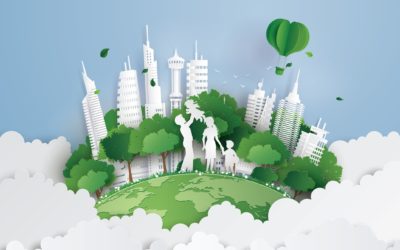

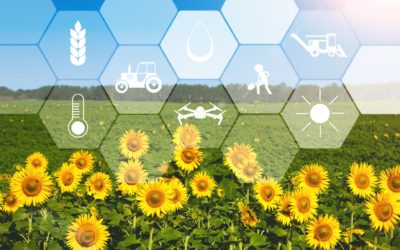
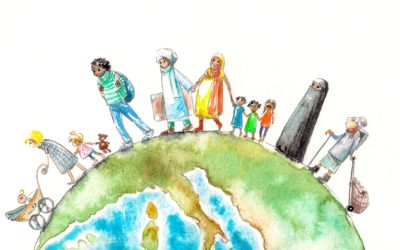

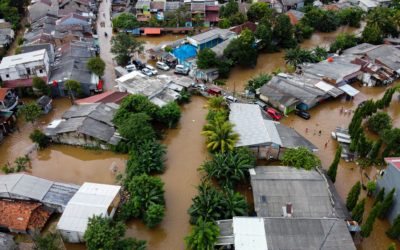
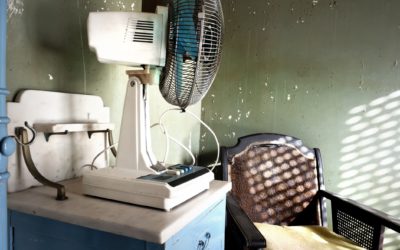
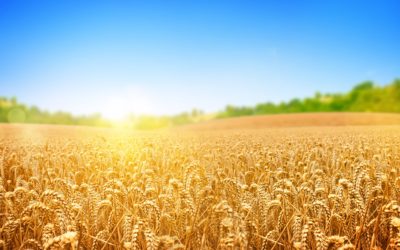

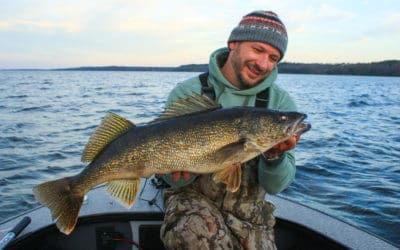
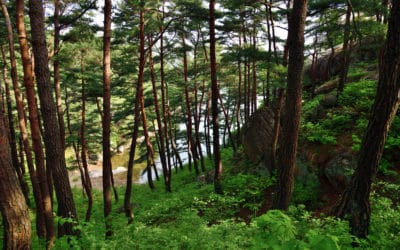

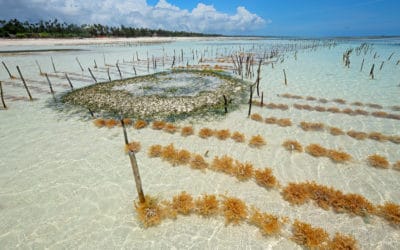
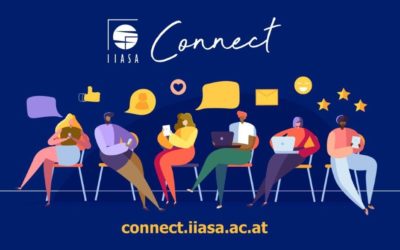

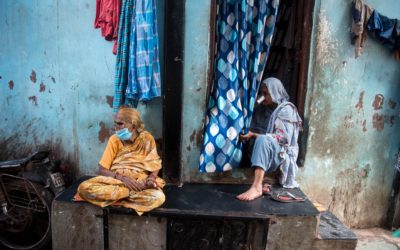
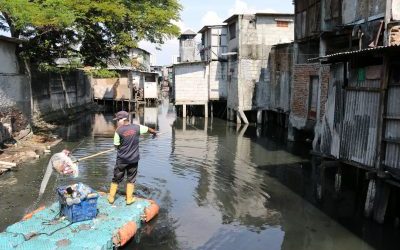
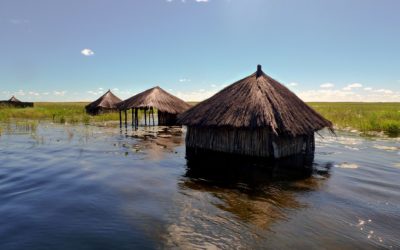
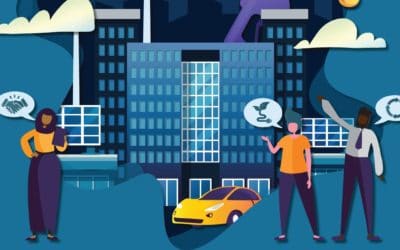
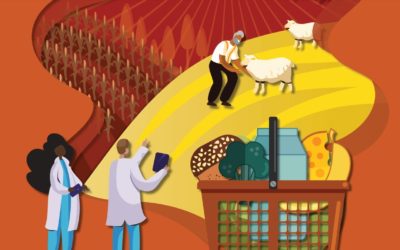
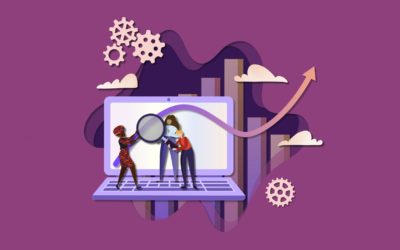


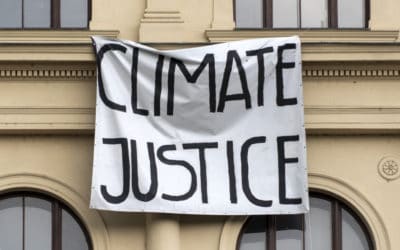

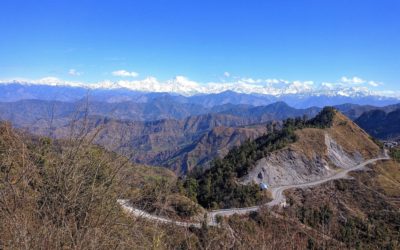
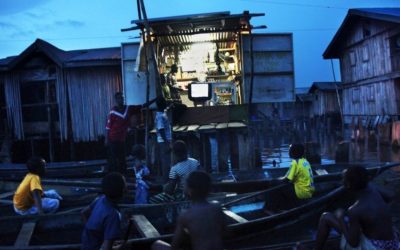
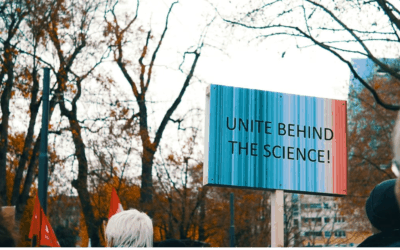

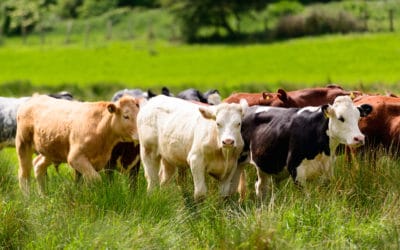
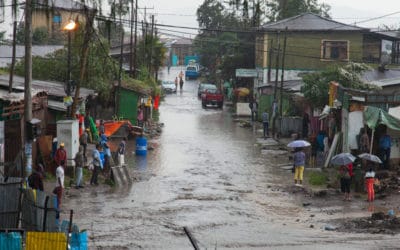
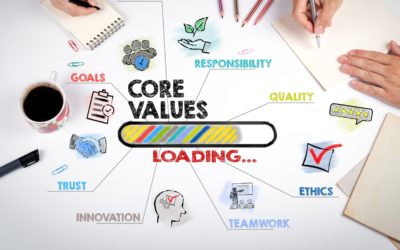

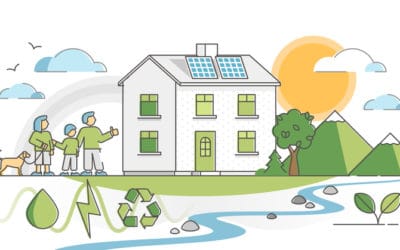
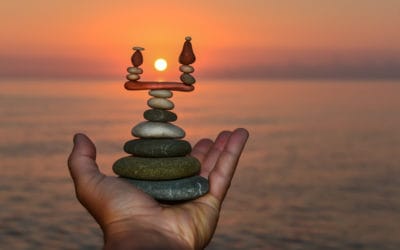
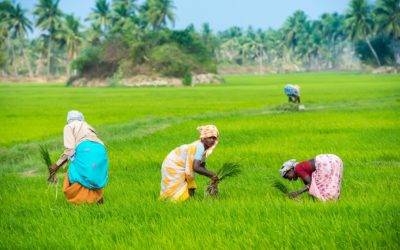
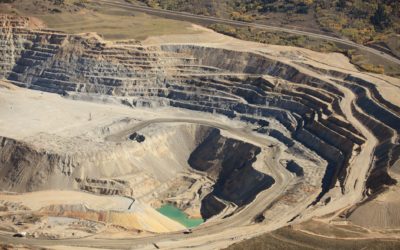

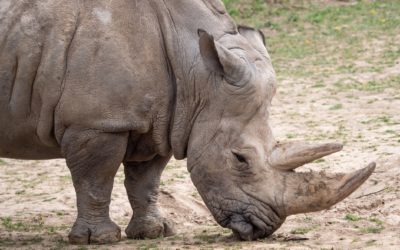
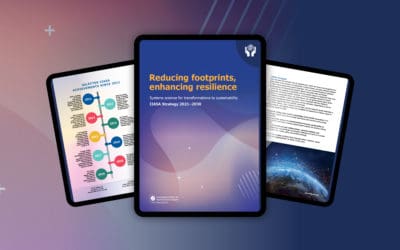
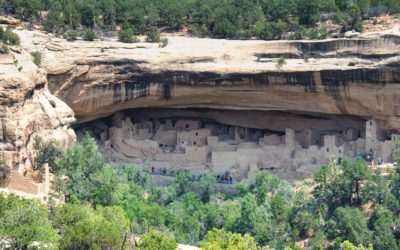


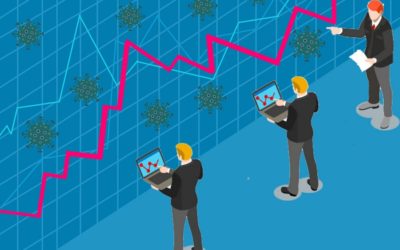
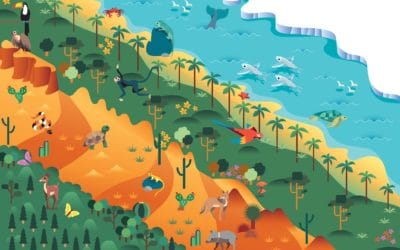
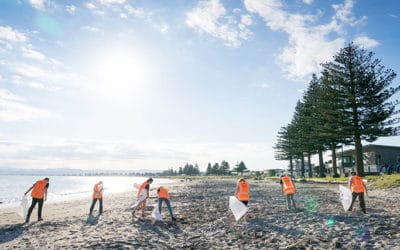
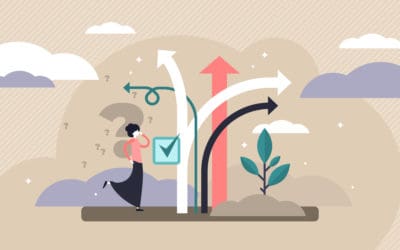
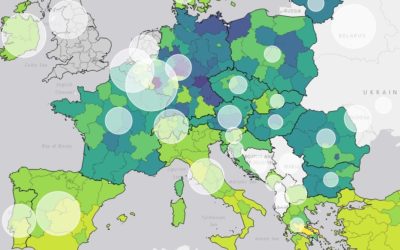
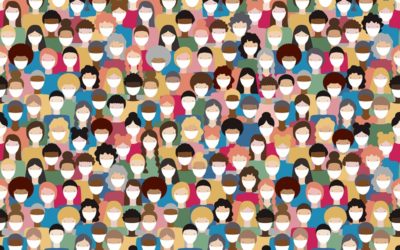
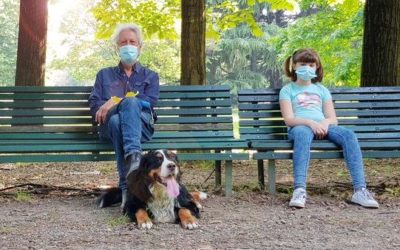
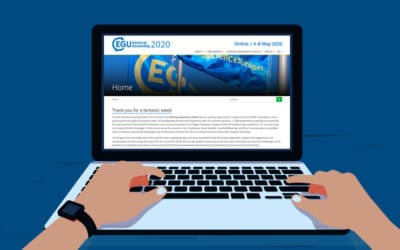

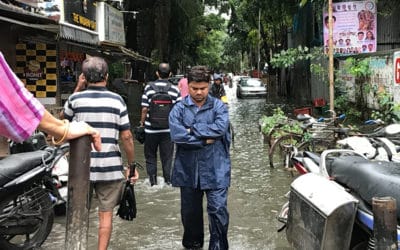
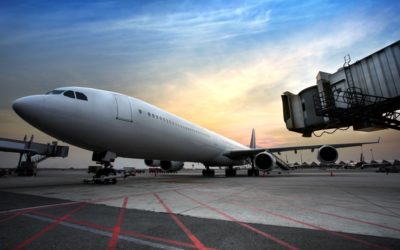
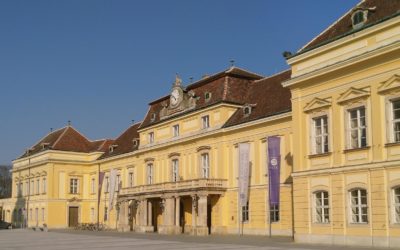
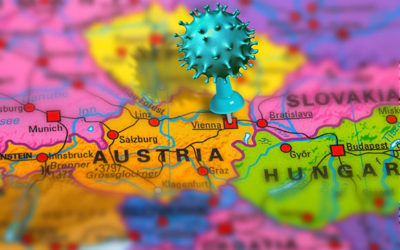
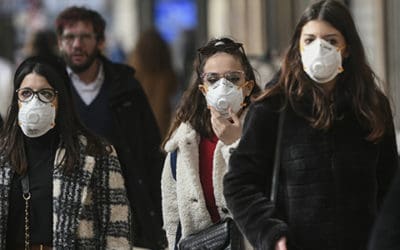
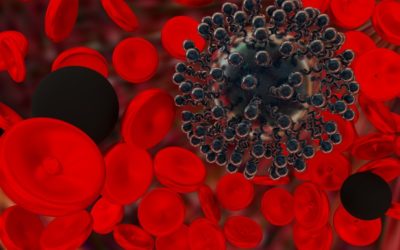
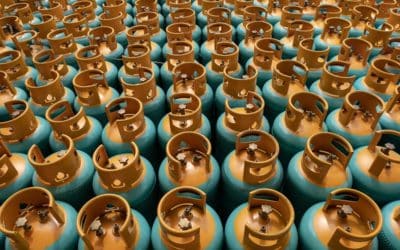
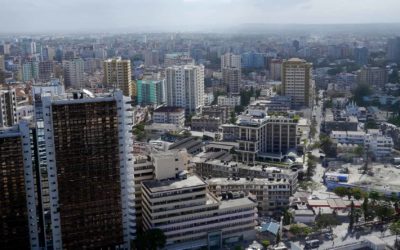
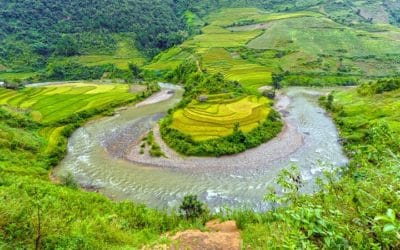
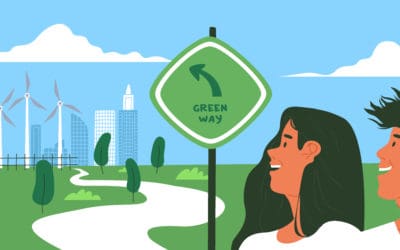

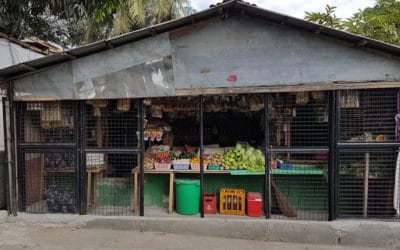
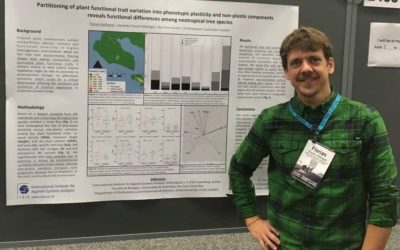
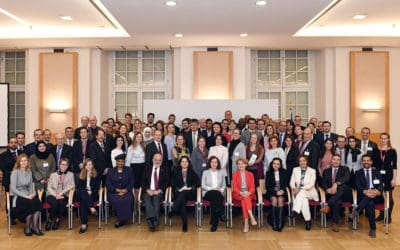
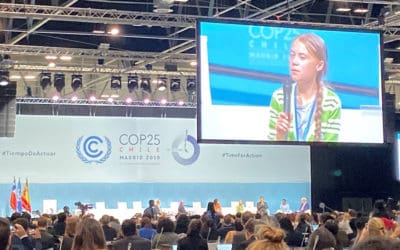
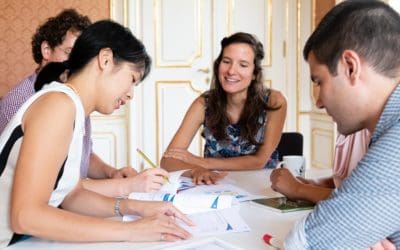


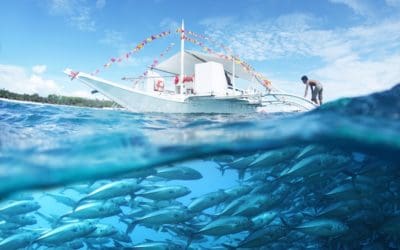
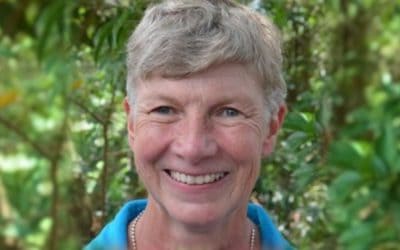


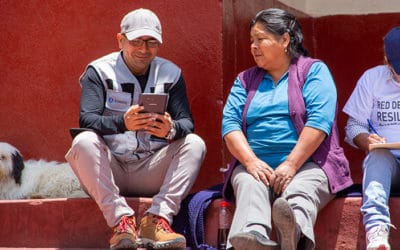
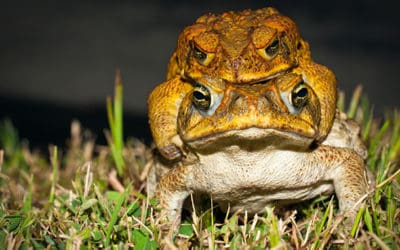
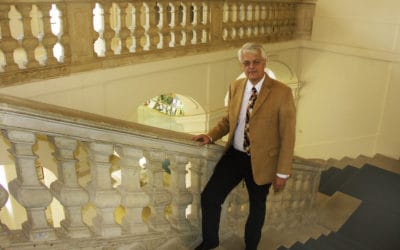
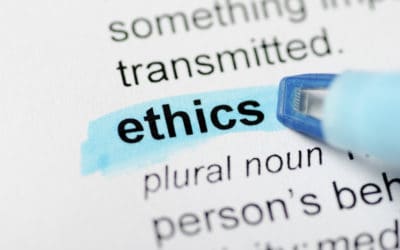

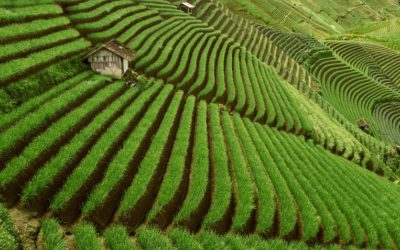
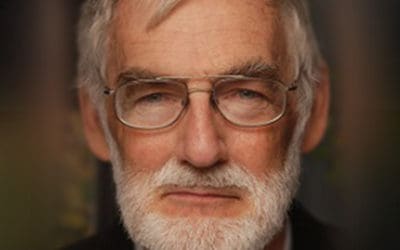
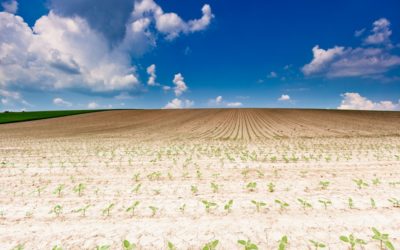

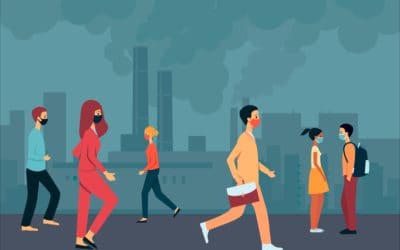

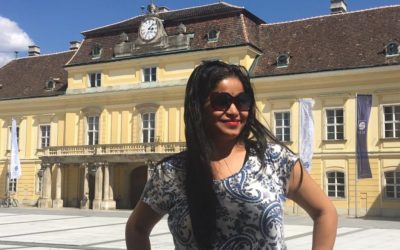
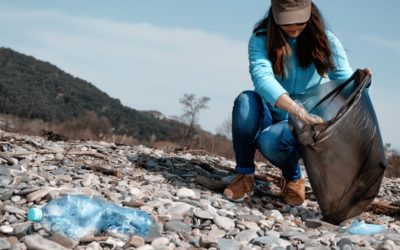
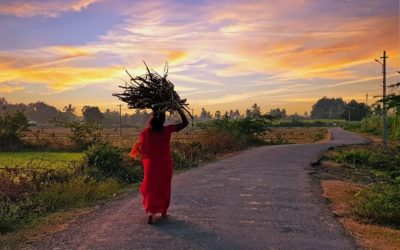
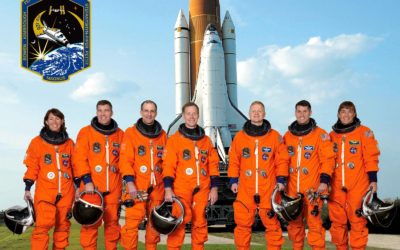
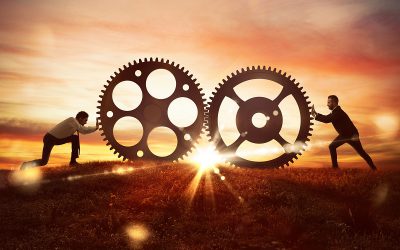
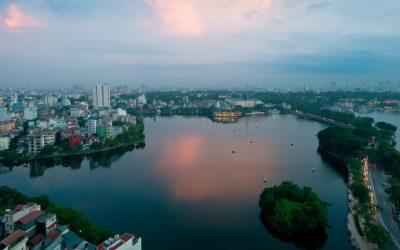
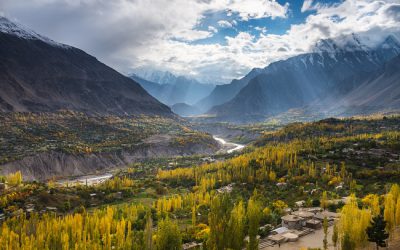
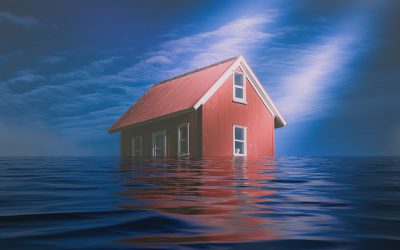
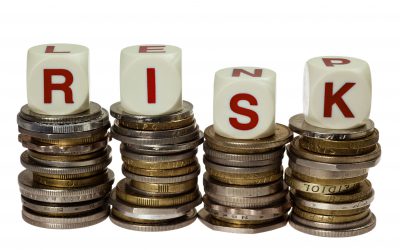
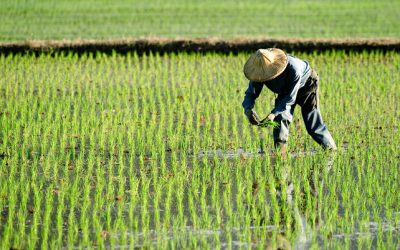
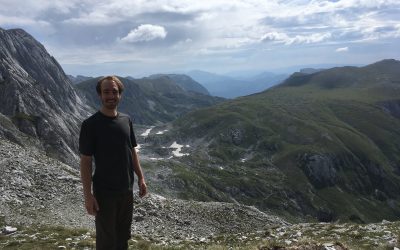

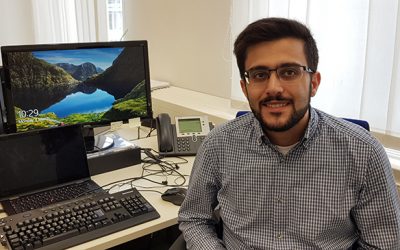
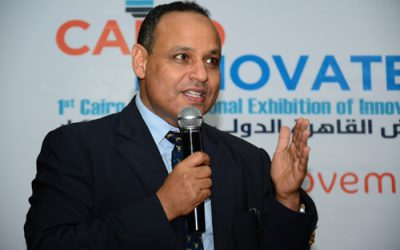
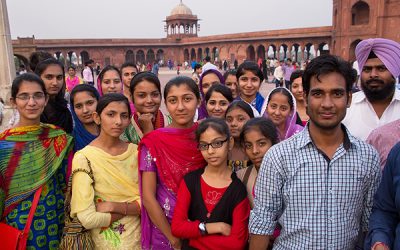

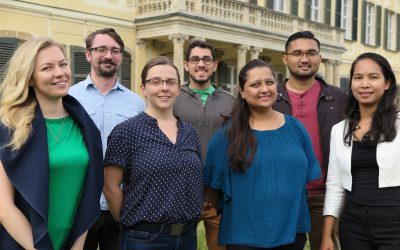
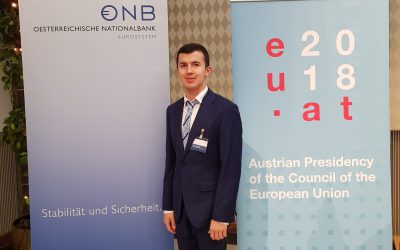
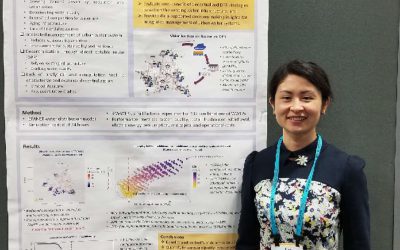
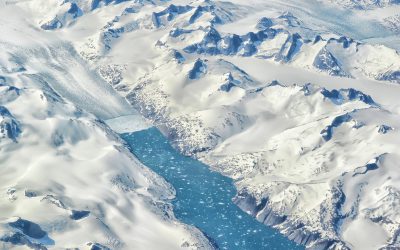
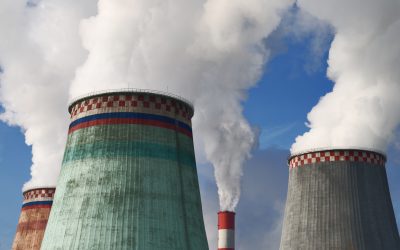
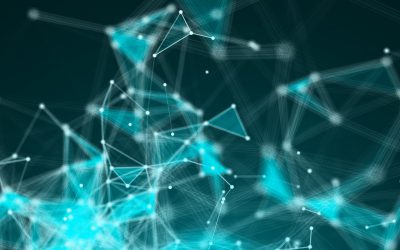

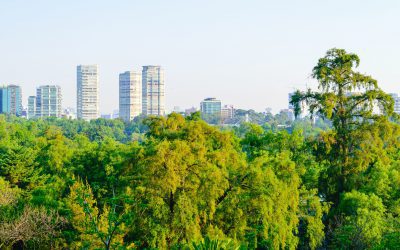
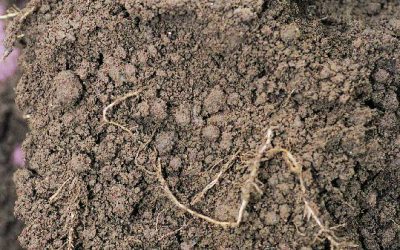

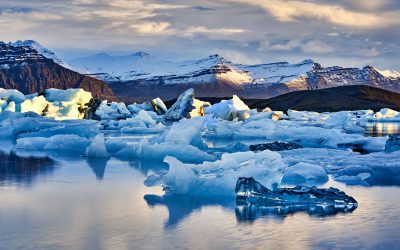
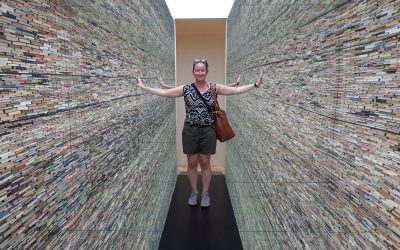
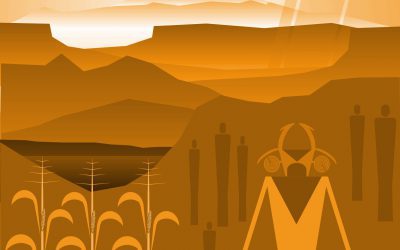
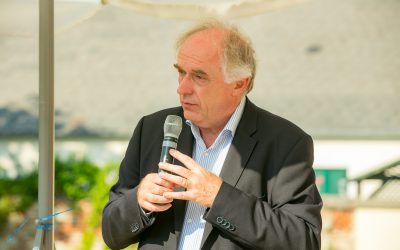
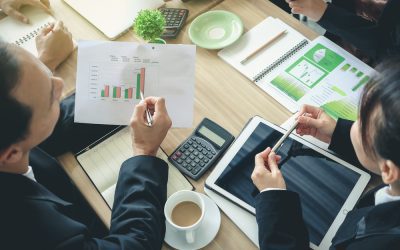
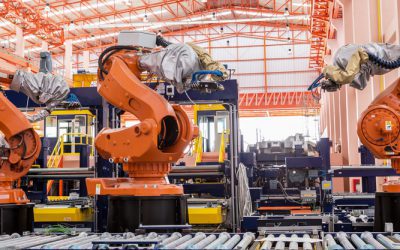
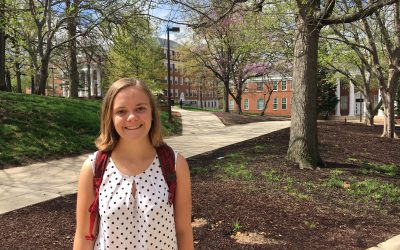

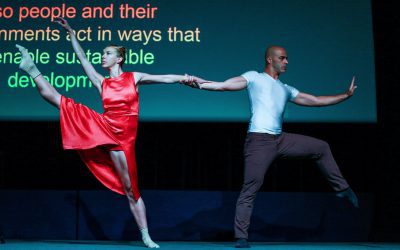
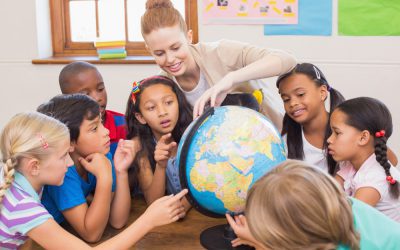
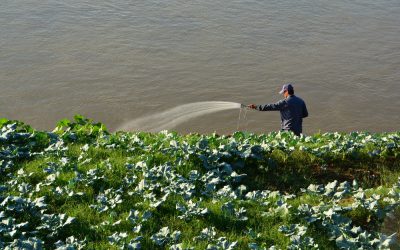
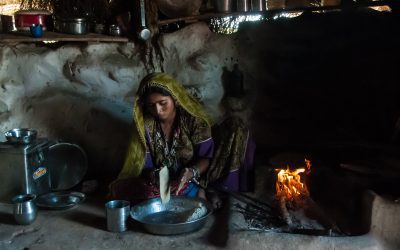

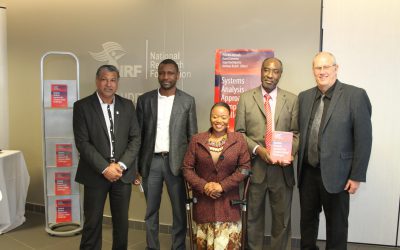

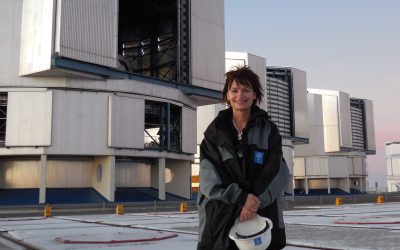
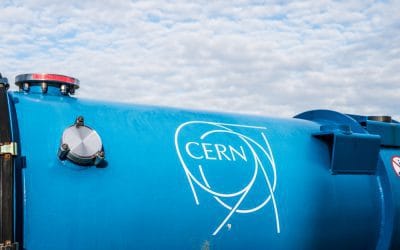
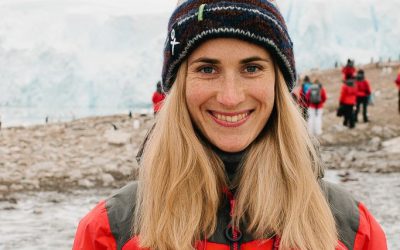
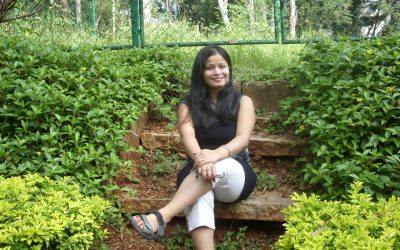
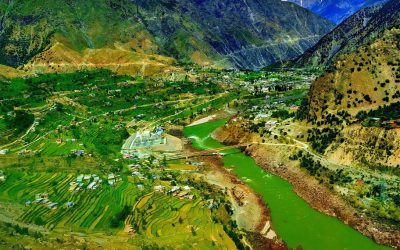
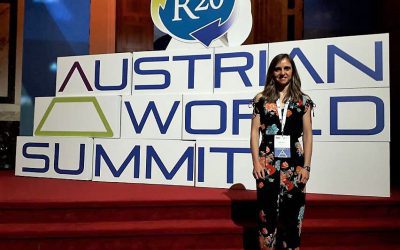
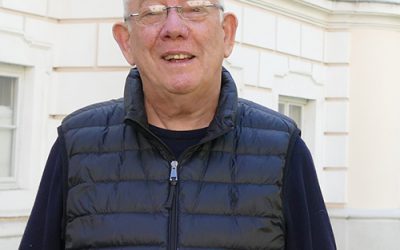
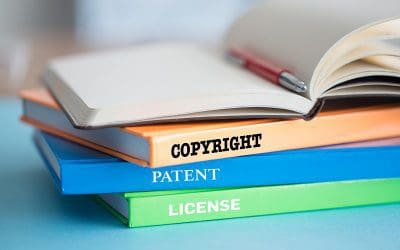

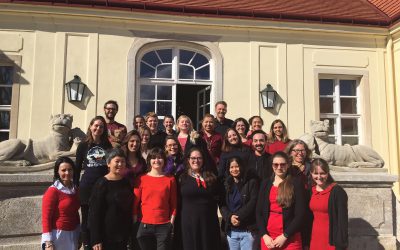

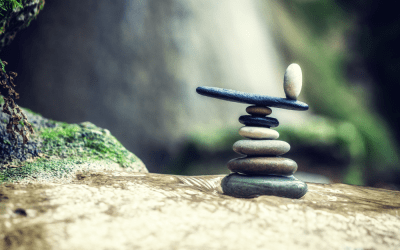

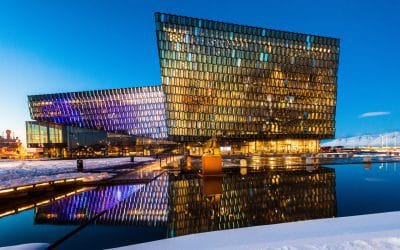


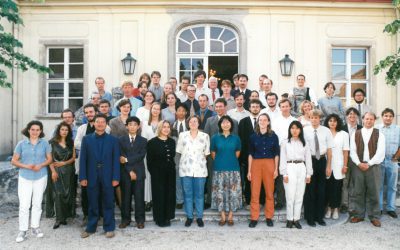


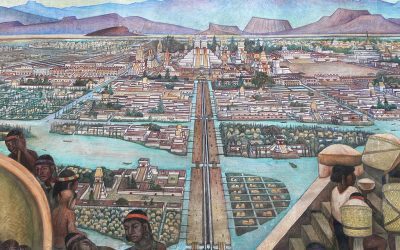


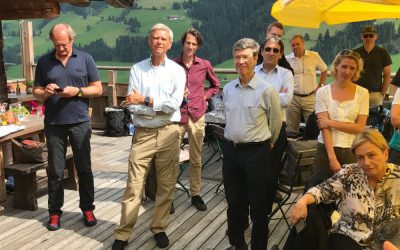
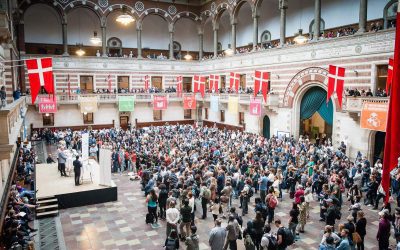
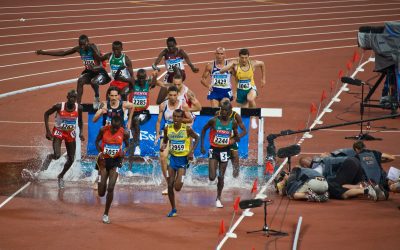
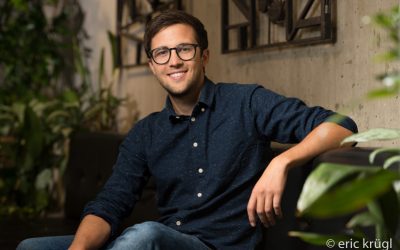

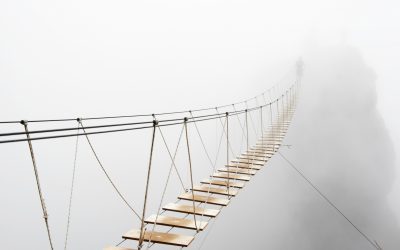
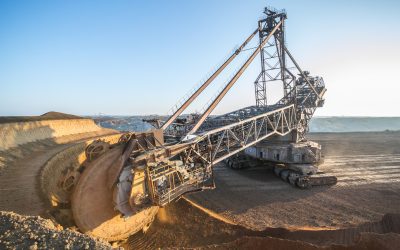

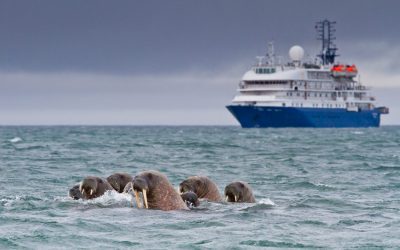
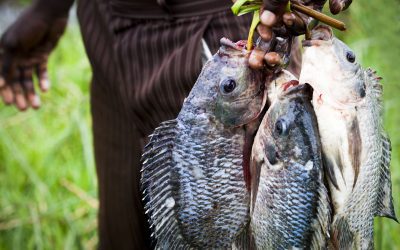
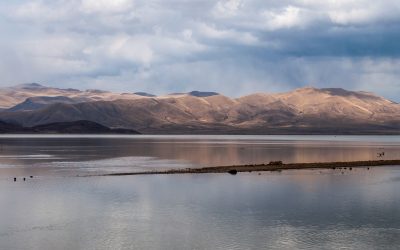
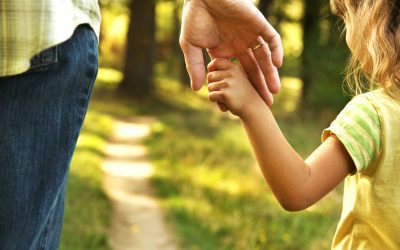
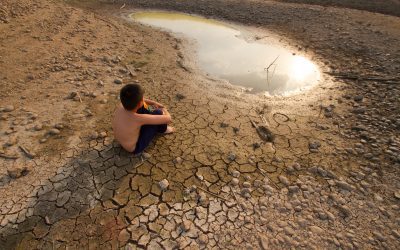
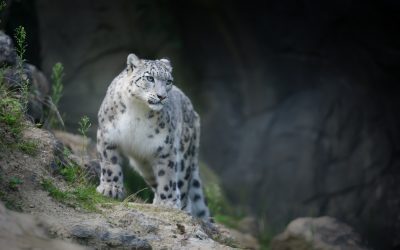
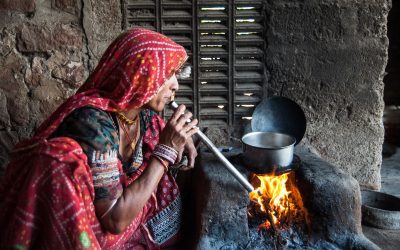

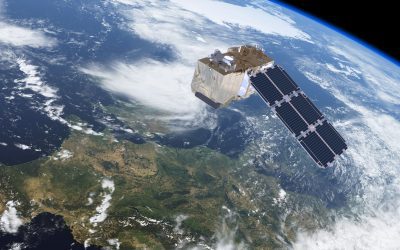

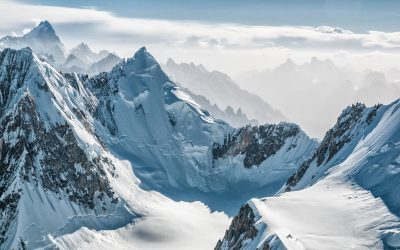
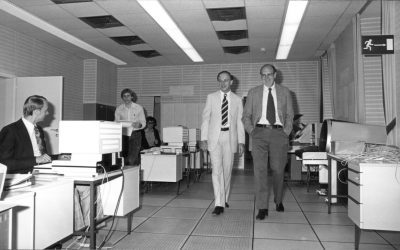
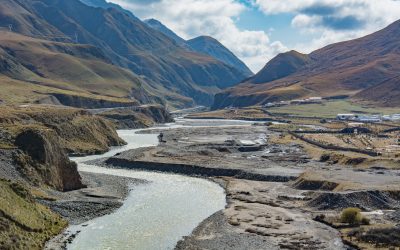
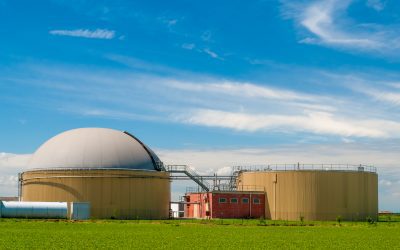


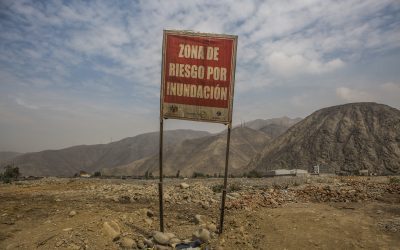

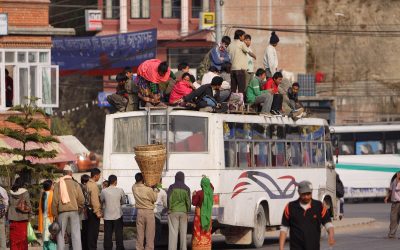

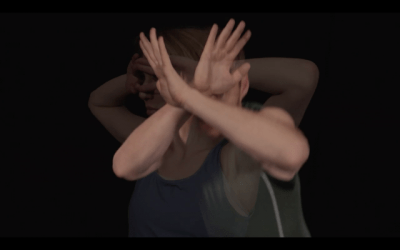
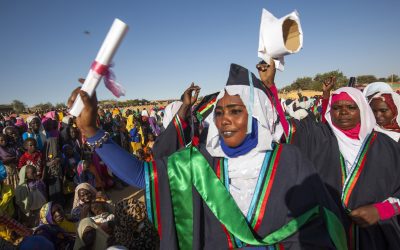
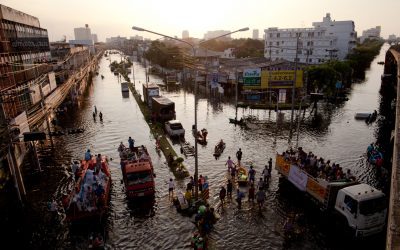
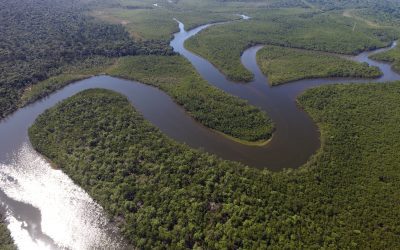
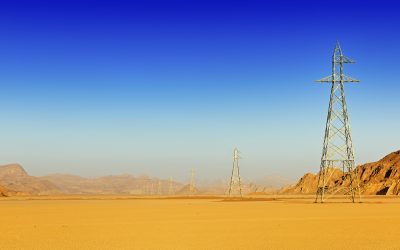
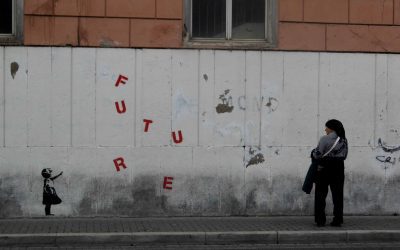

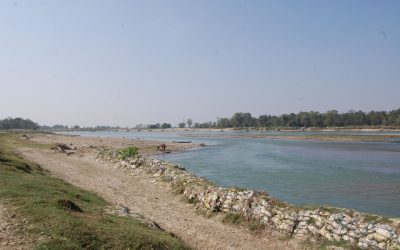
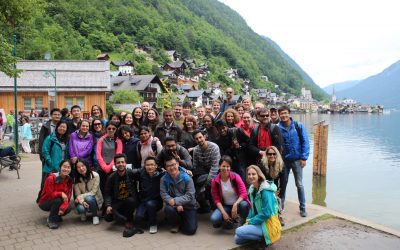
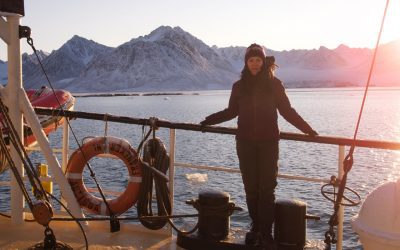
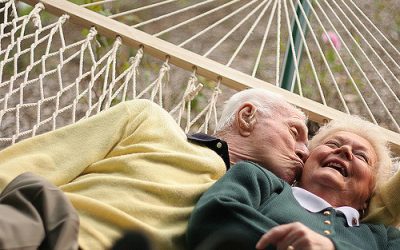
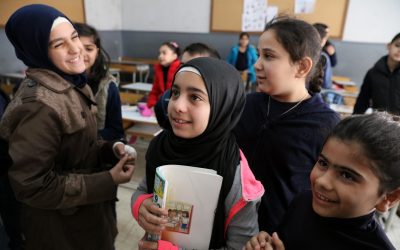
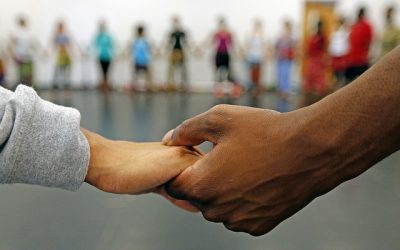
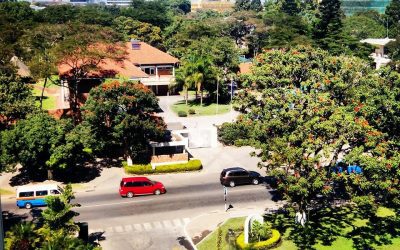
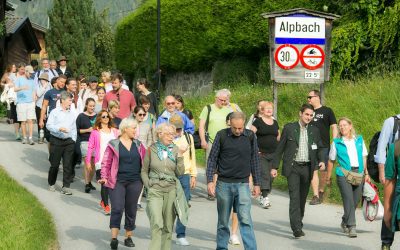
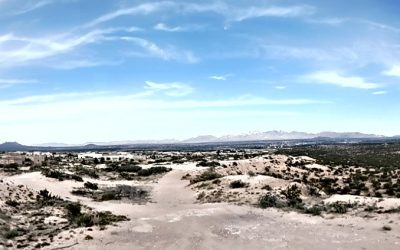
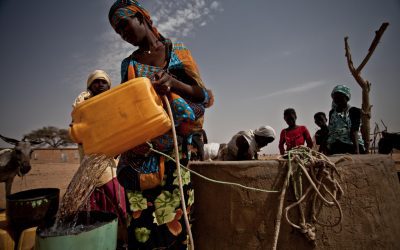
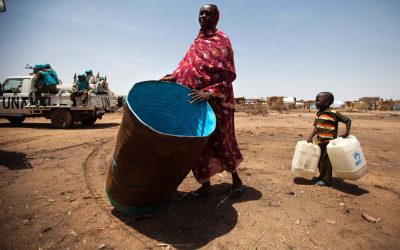
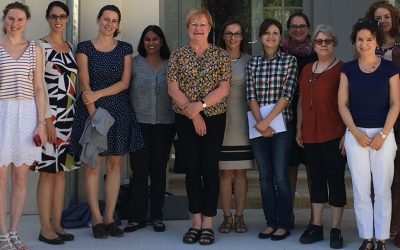
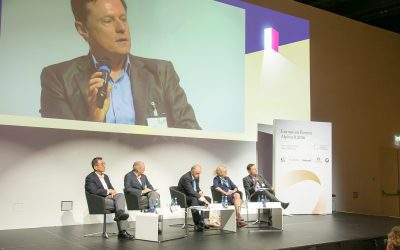
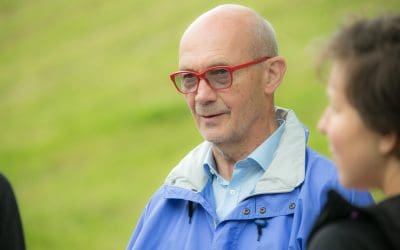

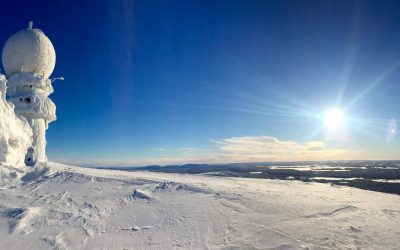
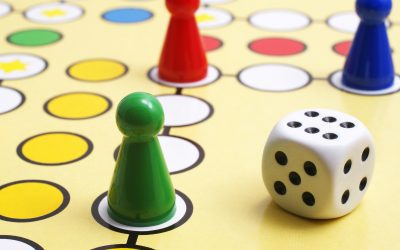
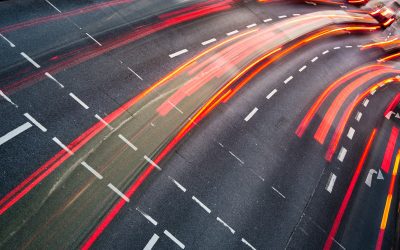

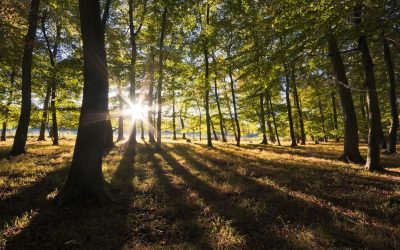
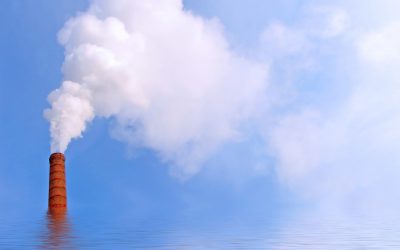
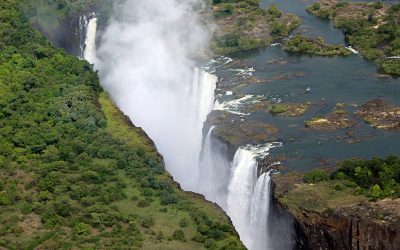
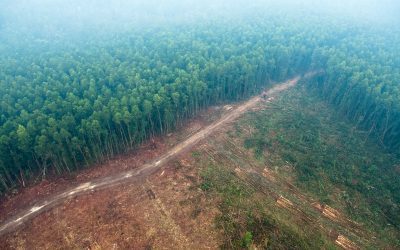
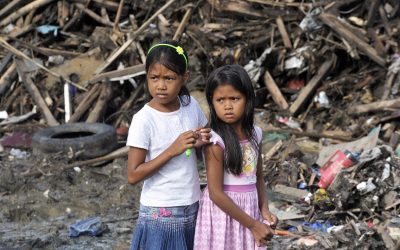
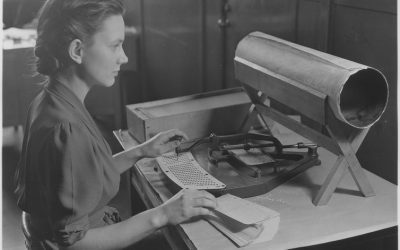
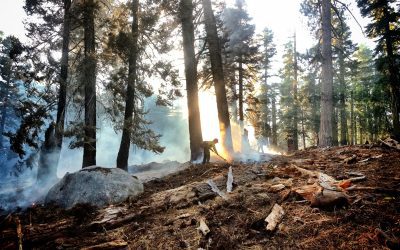
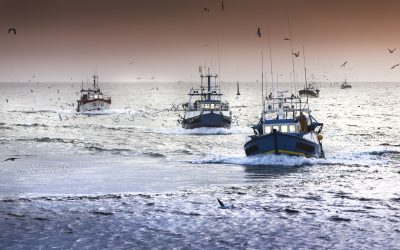
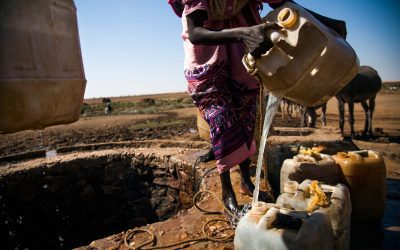
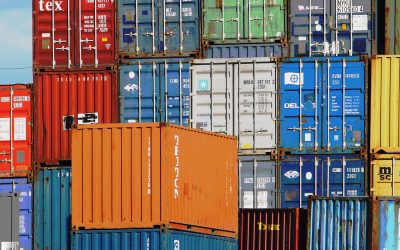


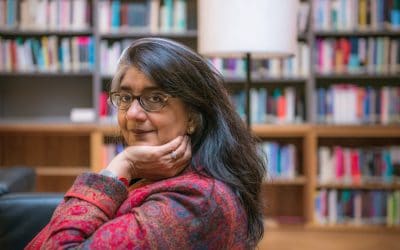
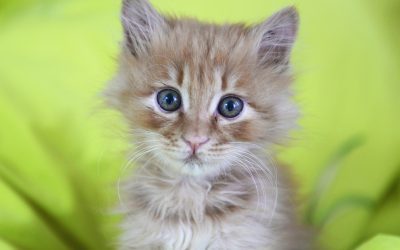
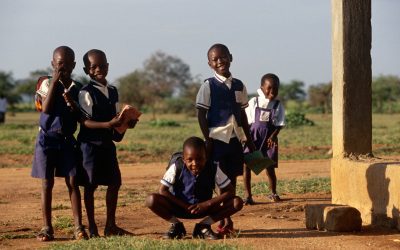
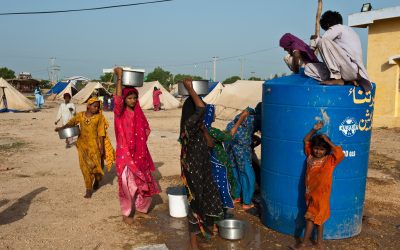

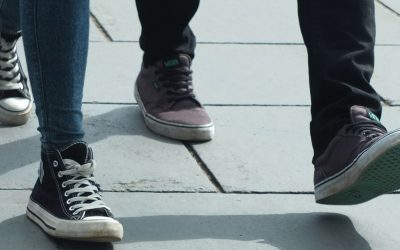
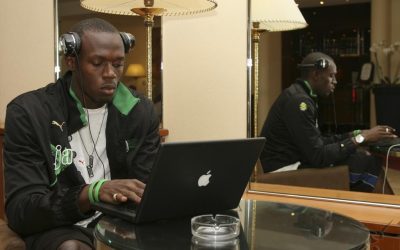

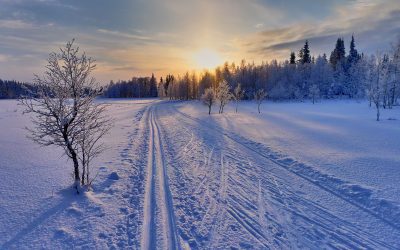
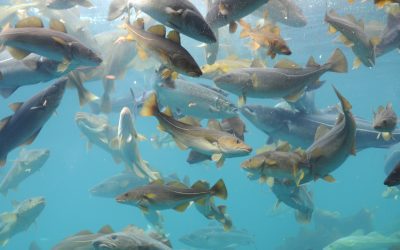
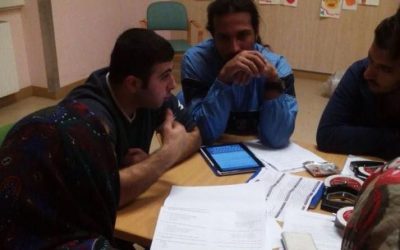
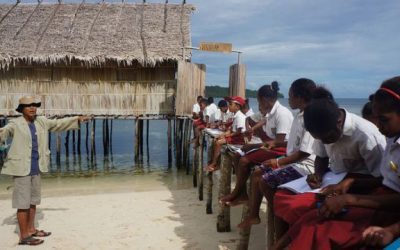
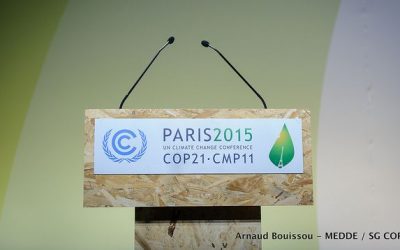
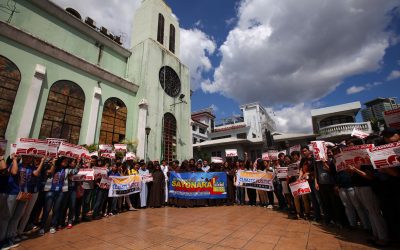
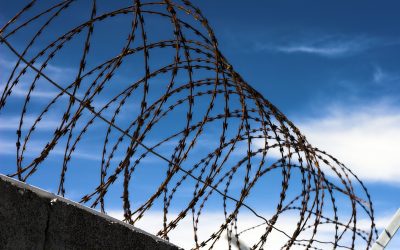
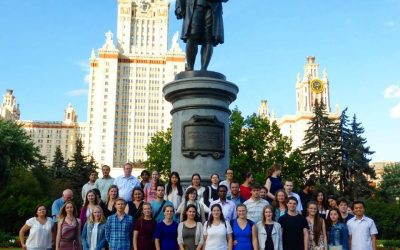
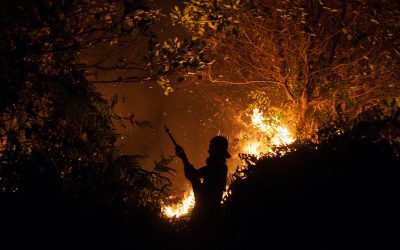
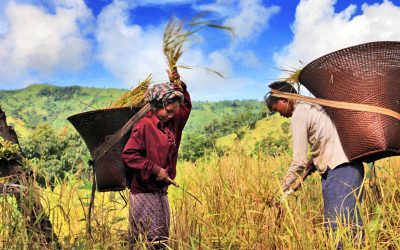
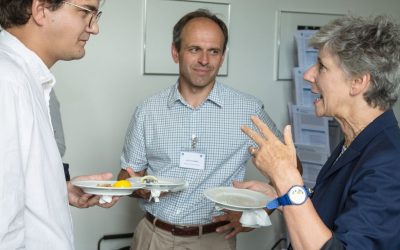
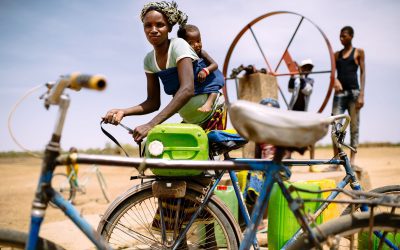
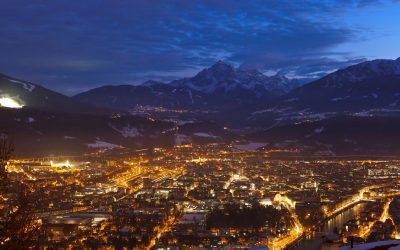
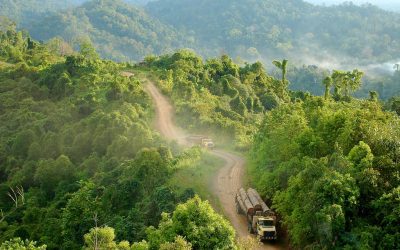

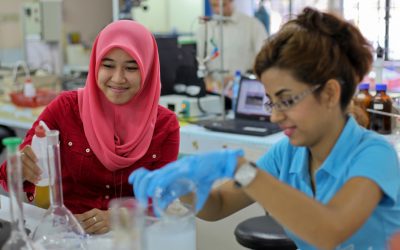
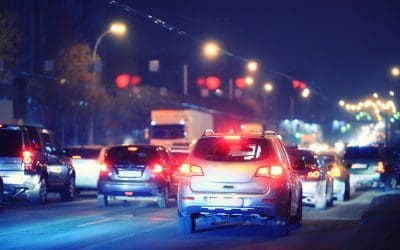


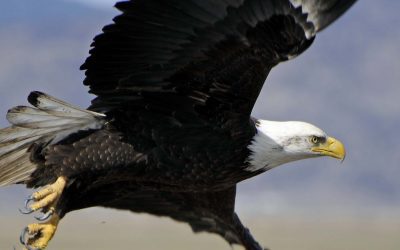
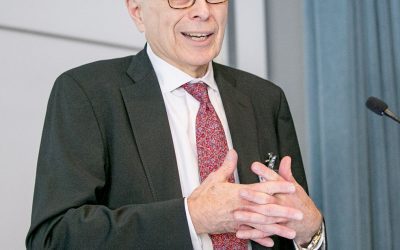
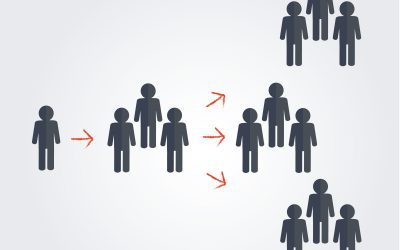


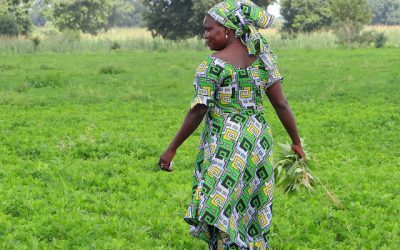


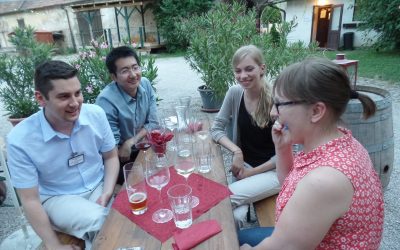
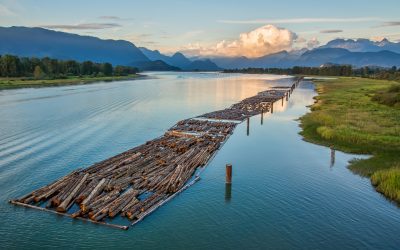
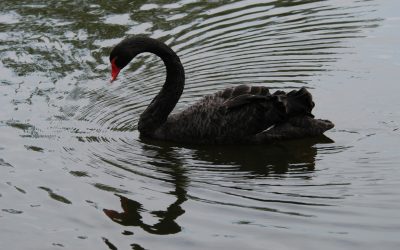

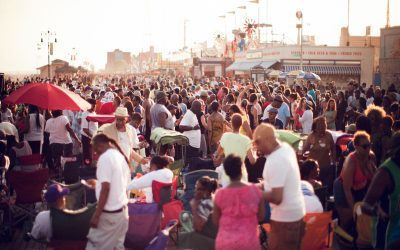
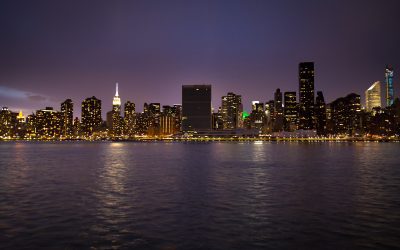
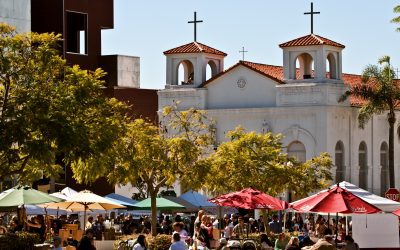

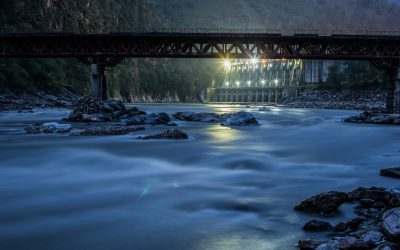
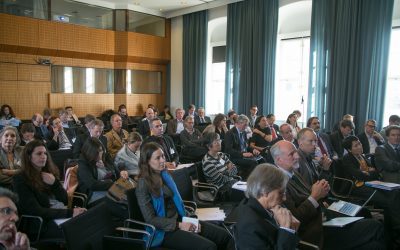
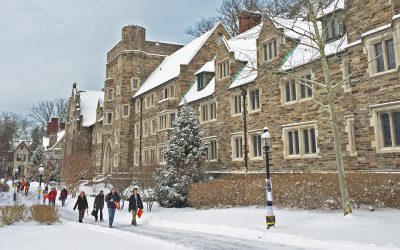

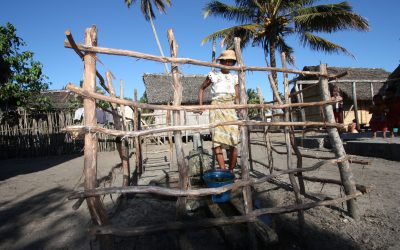
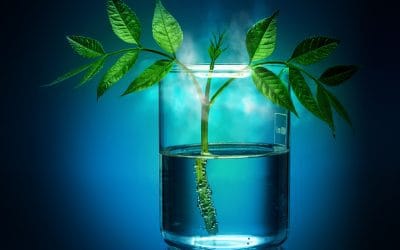

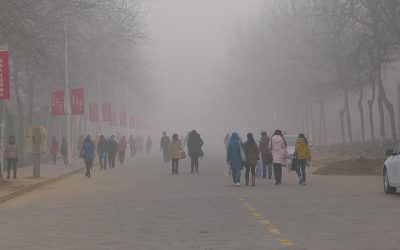
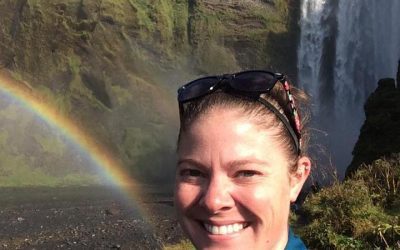

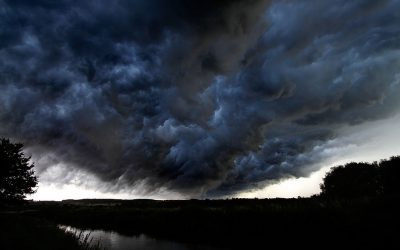
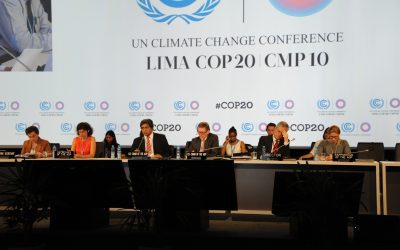
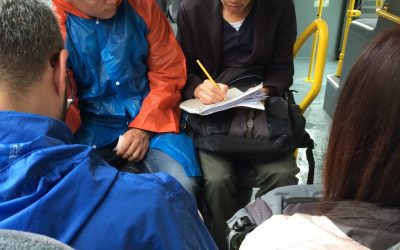

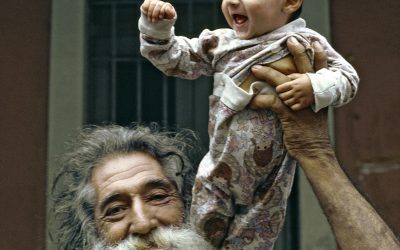



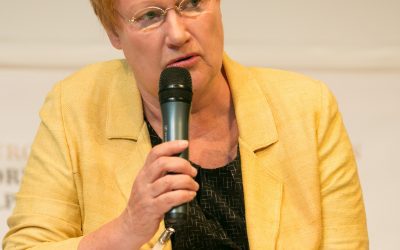

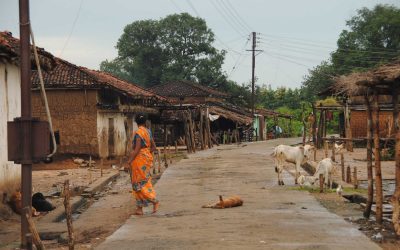
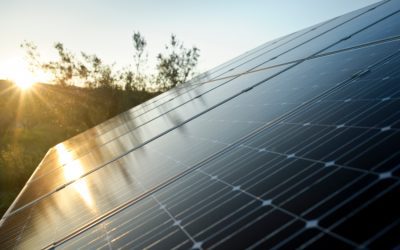
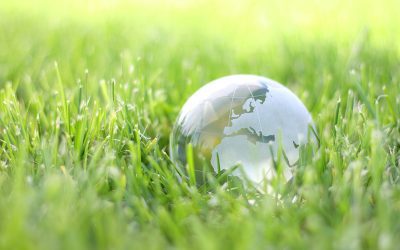
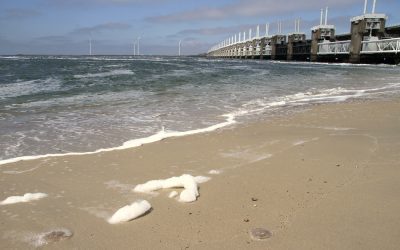


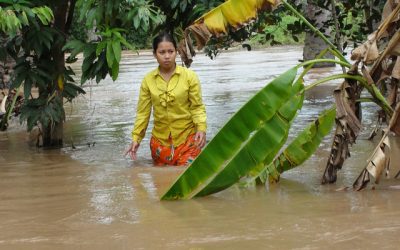
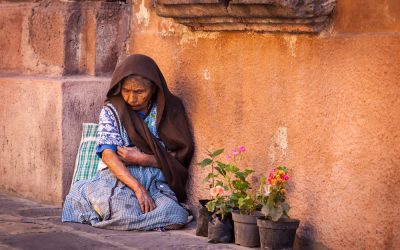
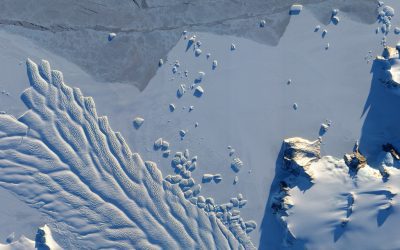
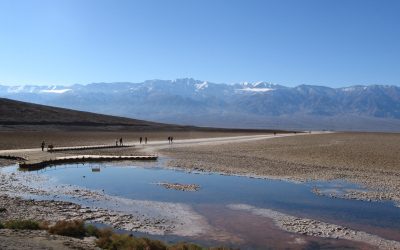
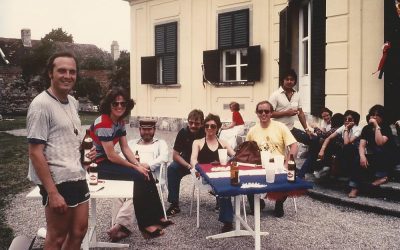



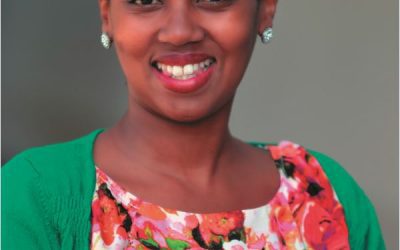
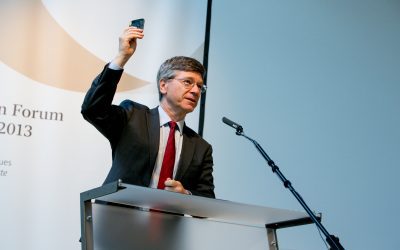

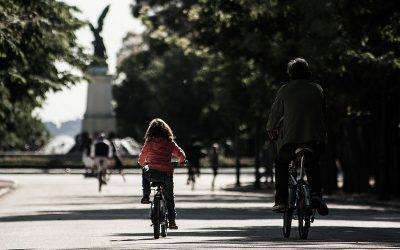
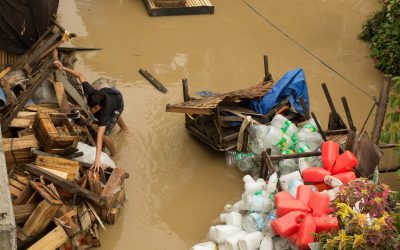
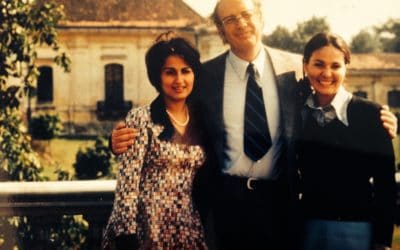
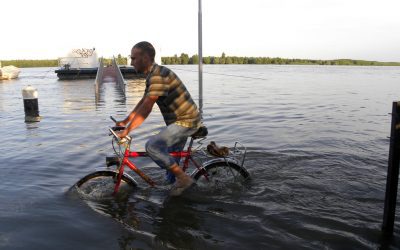
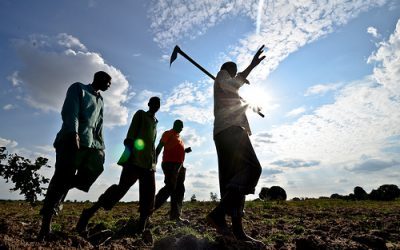

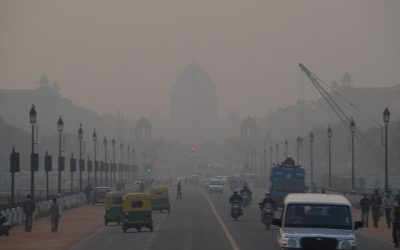



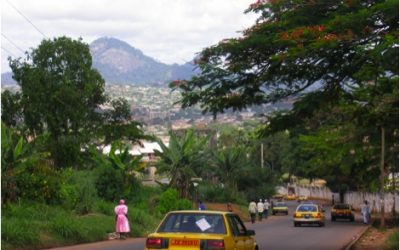
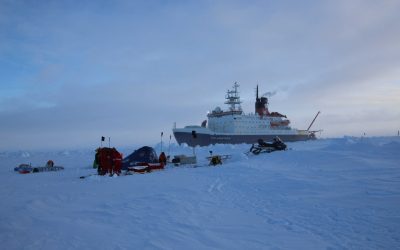
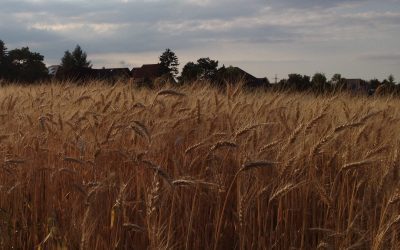
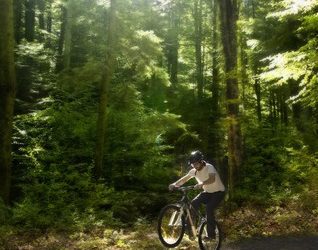
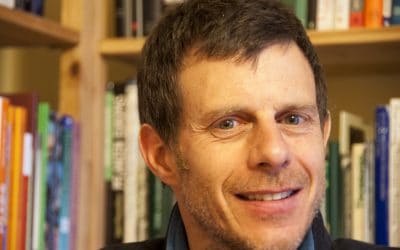
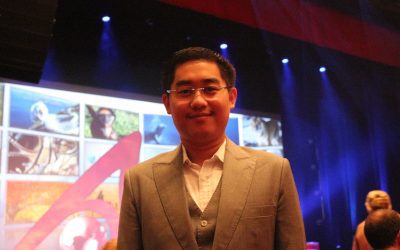
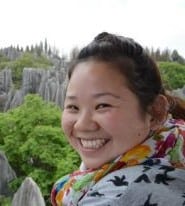
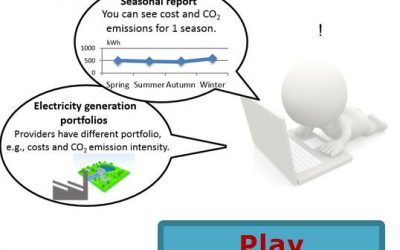
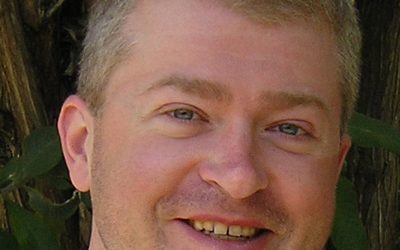

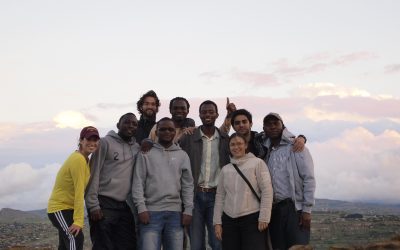
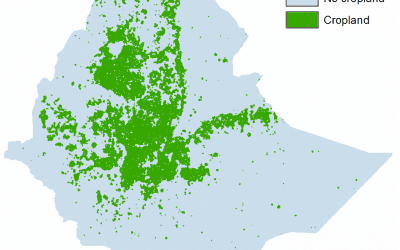
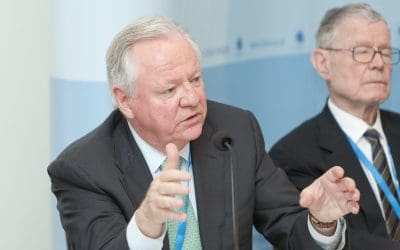
You must be logged in to post a comment.